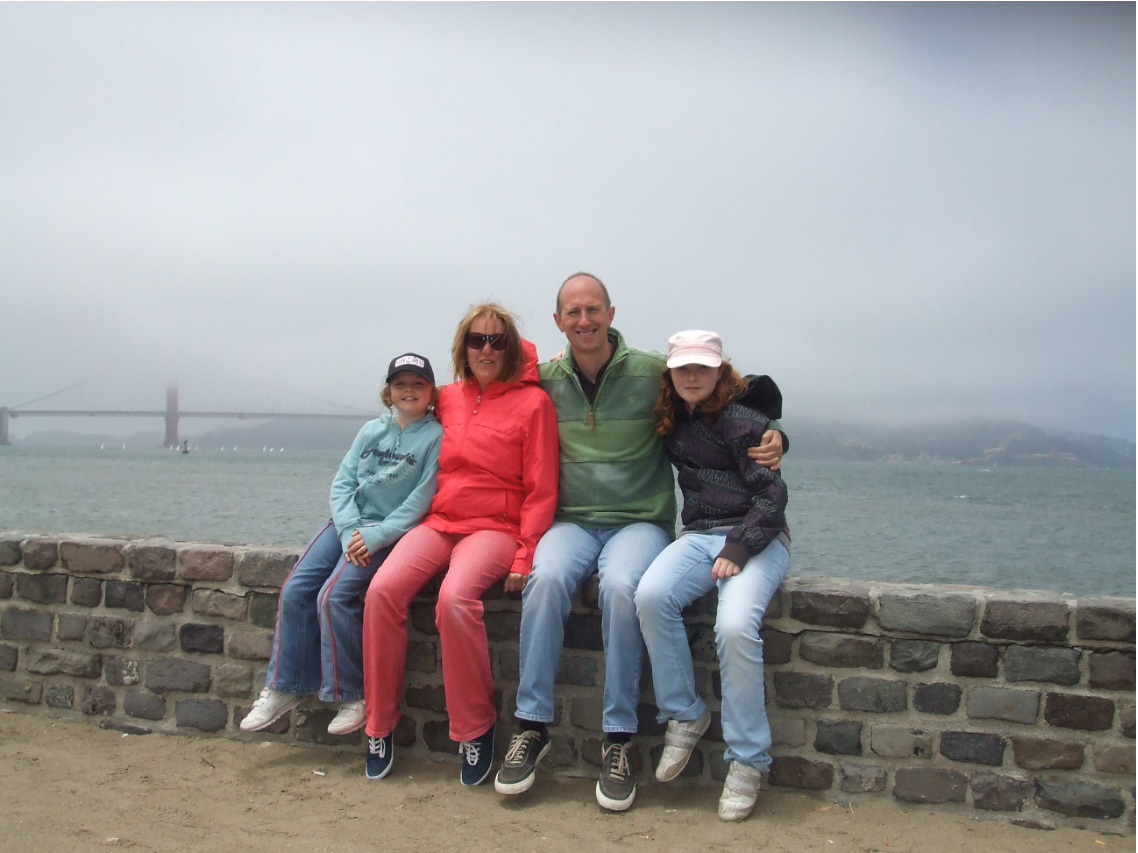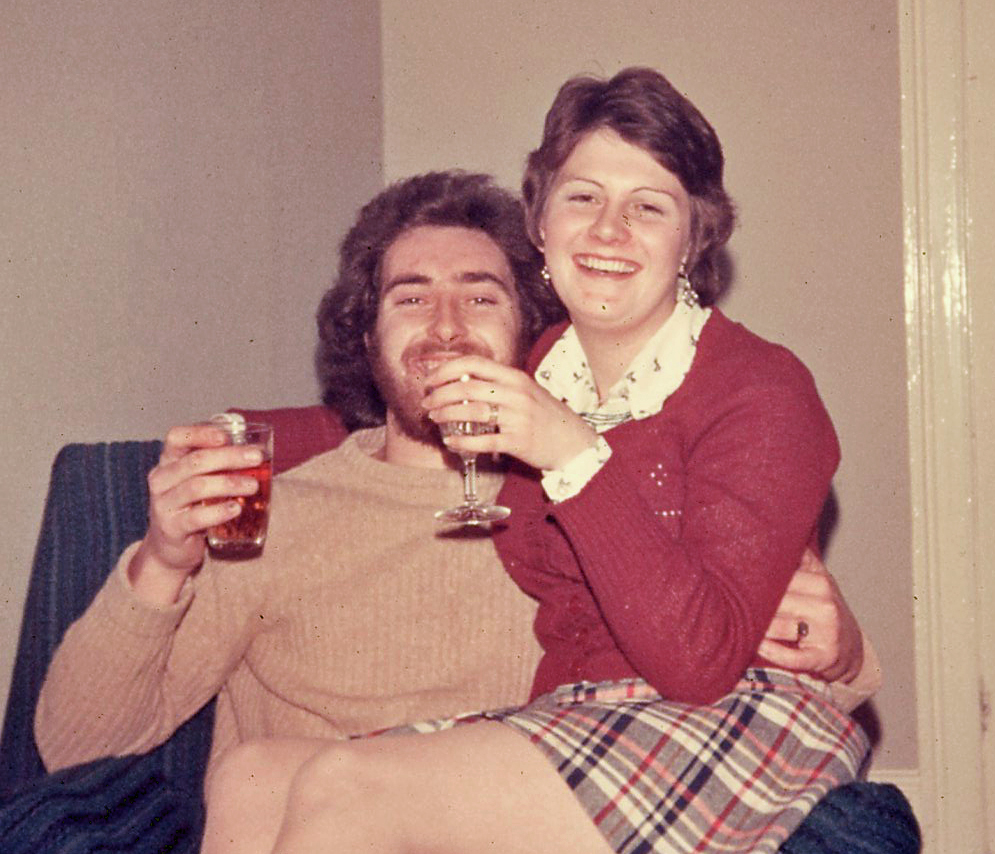Caring for Anna
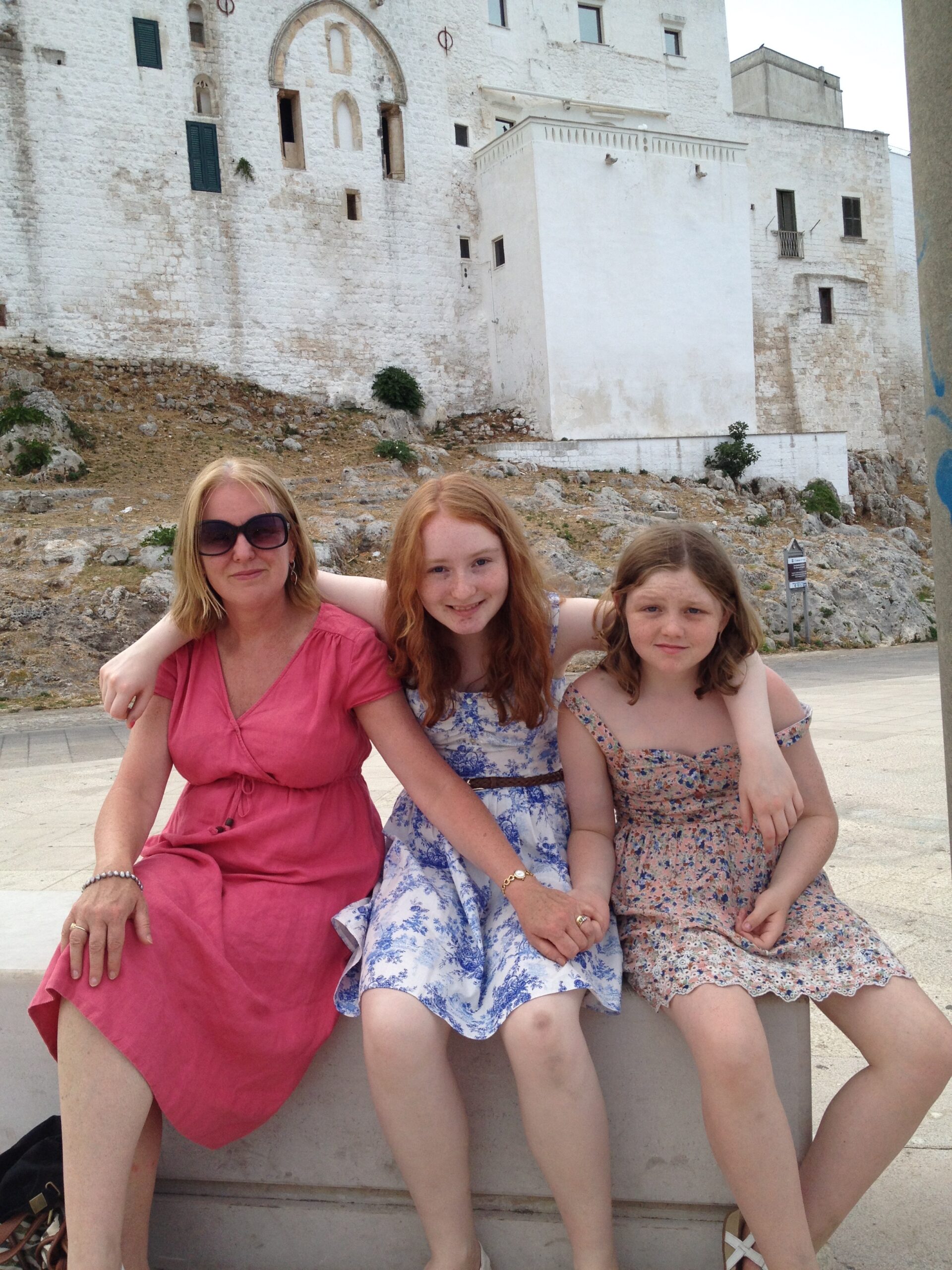
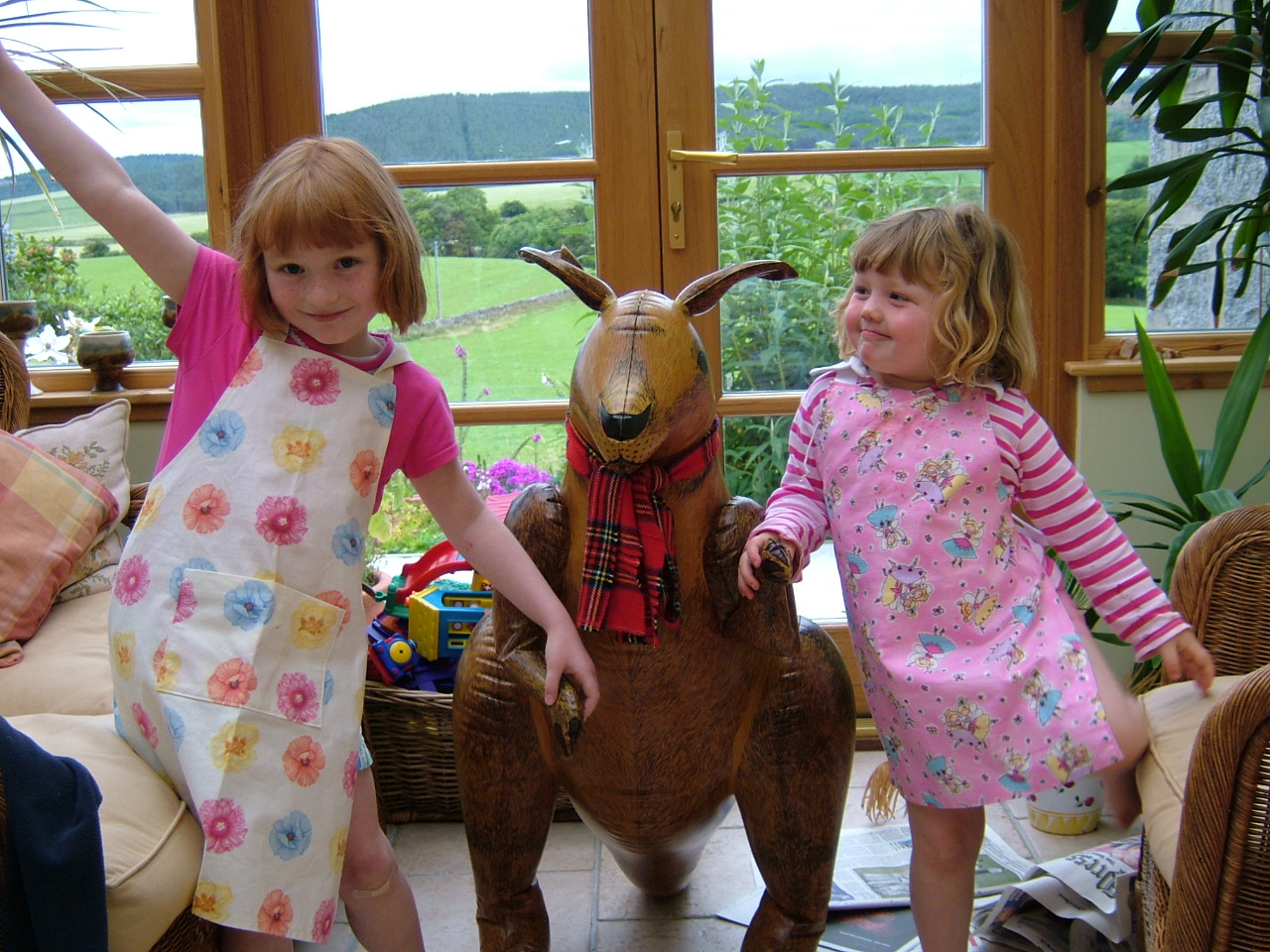
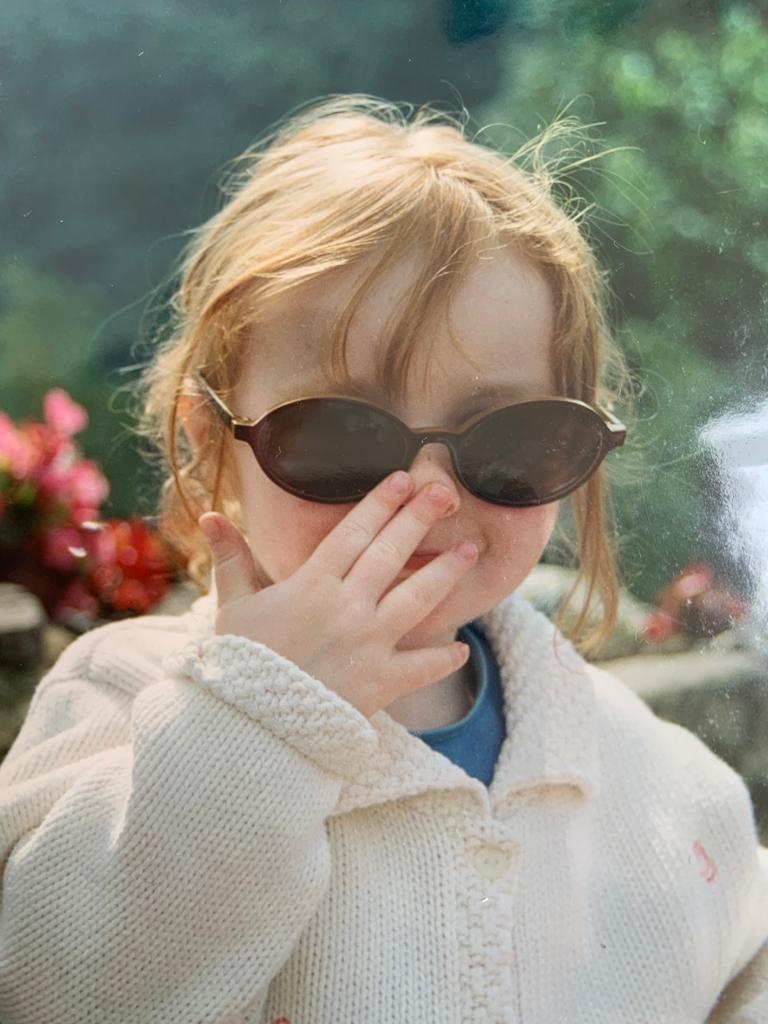
One of the Family Matters films made for this campaign is about our daughter Anna, who is 23 in a couple of months and has Juvenile Huntington’s disease. We have been delighted to take part in this campaign, and although we had to give it a lot of thought, we were led in the end by Anna, who felt she wanted to take part to help raise awareness.
It is important that we talk about Huntington’s, the lack of awareness and general understanding of the condition makes it much harder for families who are affected, and it can feel very isolating at times. For us, we care for Anna full time, and it does take a lot of work and a lot of teamwork too. We have another daughter, so it is important to get the balance right as much as we can in caring for them. Obviously, Anna’s needs mean we can be quite absorbed in daily life looking after her, but we consciously try and keep things as normal as we can, to maintain a normal family life as much as possible, for all our sakes.
It is a privilege to care for her of course, can be very rewarding but at times also incredibly hard and I think it is difficult for people outside the Huntington’s community to understand the mix of symptoms and the implications for daily life.
Anna’s movements are affected, and we are on constant alert to make sure she doesn’t fall or hurt herself. We are also getting to the point where walking any distance can be challenging. One day it will make sense to have a wheelchair as she loves getting out and about. It would make life easier and open up more opportunities, however we can’t rush into that, she clearly isn’t ready to accept a chair yet and we are not going to push her too hard. We feel it’s important to let her have a degree of control over her situation.
Not surprisingly, she also sometimes struggles with black moods, where she can be really quite angry and uncommunicative. These episodes can be extremely hard and upsetting to deal with, as she will stay in her room, refuse to talk, eat or drink properly. We worry terribly about maintaining her food intake and hydration when she is in these episodes as well as keeping her safe. These phases can last for up to three days. However, when she is going through a patch like that, we know it isn’t really her, but the Huntington’s, as she is a wonderful, funny, and kind young lady when she is herself.
Food presents its own problems at other times too. Because of her excessive movements making sure she is getting enough calories is something which is constantly on our mind, but at the same time we are also on high alert for choking, round the clock.
One of the things that is hardest for Anna to cope with is the neurological fatigue that she experiences. I also find this difficult to explain to other people as it is hard to differentiate from normal everyday tiredness in people’s minds. But when Anna experiences fatigue, it isn’t just a case of being ‘worn out’, it actually worsens all her other symptoms, and affects the fundamentals; standing, walking, eating. We know that when she is fatigued she is more in danger of hurting herself by falling over or choking. So, we constantly manage a daily timetable to lessen this symptom.
Caring for Anna is constant and a 24/7 activity. We love her and consider caring for her a privilege of course, but it is relentless. We are lucky that there are two of us, but do feel the pressure if one of us is out of action for any reason. We both left our jobs some time ago, ironically I was a neurological nurse. I do sometimes get a bit fed up when people ask how we are enjoying our retirement! It’s anything but! We are trying to look into respite options at the moment, but it is not straightforward, as Anna’s caring needs are unique. For someone to step into a caring position, there would need to be a high level of understanding of Huntington’s and of course complete trust.
Huntington’s was something we never expected to encounter and of course our life took a direction we didn’t see coming with Anna’s diagnosis in 2019. Anna’s situation has been, and continues to be, utterly devastating. But, we have met some incredible people, and feel that we have been welcomed into this tiny but strong community. I would strongly encourage anyone in our shoes to reach out, you have to ask for help, it’s not possible to do this on your own. Our specialist HD nurse is absolutely wonderful, and the Scottish Huntington’s Association have been marvellous, as have the various other support groups and young people’s groups that Anna is in touch with. We love that this campaign is for all of the UK and Ireland too, how wonderful that the wider community is coming together in this way, to help raise our voices without artificial barriers.
We are so proud of Anna, and hope that people will be able to see her wonderful and unique personality shining through the Huntington’s when they watch her film. And we really hope that everybody who comes across this campaign will help to spread the word, and help to increase awareness just a little bit, so that slowly but surely more and more people will hear about Huntington’s and make life that little bit easier for families coming to terms with it.
In solidarity with everyone else in this lovely supportive Huntington’s family.
Catriona, Anna’s Mum, Aberdeenshire
Carpe Diem
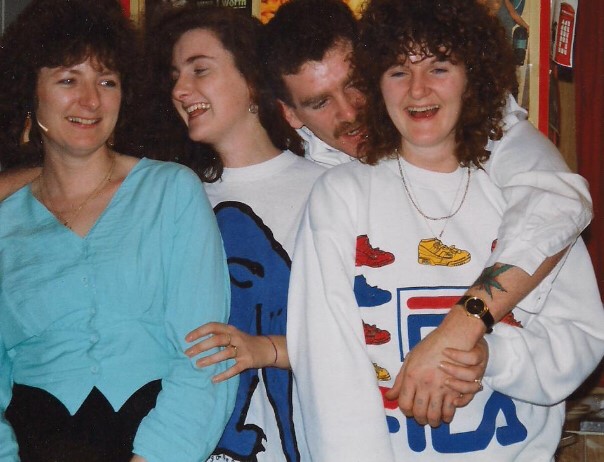
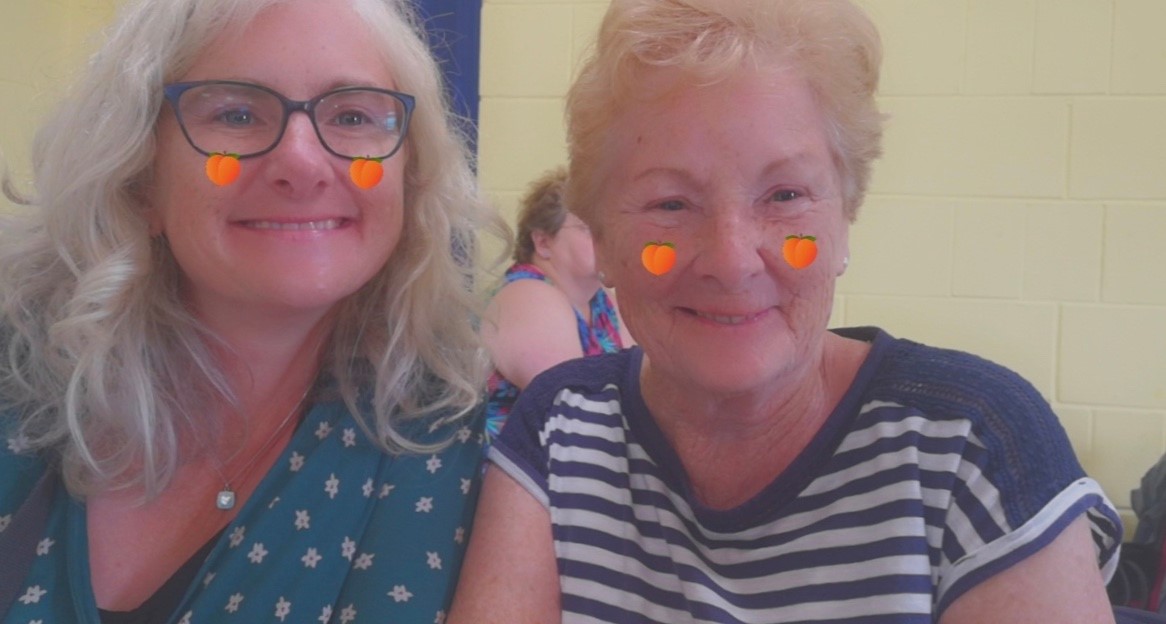
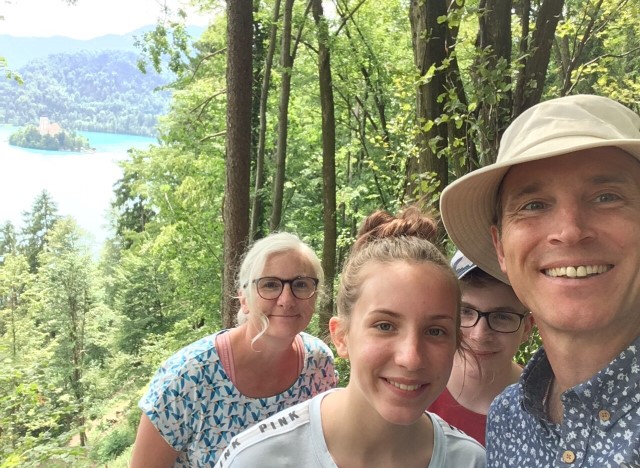
My earliest memory is when we left my Dad when I was four. We knew nothing about the disease that was behind the dramatic changes in his behaviour. He didn’t know anything either, which is heart-breaking to know. Sadly, his family had kept it to themselves and allowed him and Mum to have four children completely unaware of the potential impact on their genetics. Eventually Mum found out from the family that Dad had Huntington’s Disease and told us we might have it too. But she’d been told that only half of children could inherit it – the 50% was something everyone took literally back then. He died when I was sixteen (when he was age 54) and I felt strongly that I needed to know my genetic status straight away. I know everyone approaches this differently – I guess I must have instinctively thought ‘forewarned is forearmed’. I got tested at nineteen when I lived in Edinburgh, but it was many years before I could share the news with my Mum that I had the gene. It meant all four of her kids did – not the statistics we’d pinned our hopes on. Mum remarried and I have been lucky to have a really positive influence in my life from my step-Dad. She is a devoted mother and has spent much of her time looking out for my siblings.
Someone told me that the best thing I could do for my future self was to stay healthy. It really did sink in and thank goodness I started yoga right there and then in my twenties. I did a PhD and met my husband and then went travelling – as much as I could. I wanted to see every corner of the earth and meet people from different walks of life. I worked for the MHRA in London for a while and then came home to Scotland. My Regulatory Affairs work in global clinical trials meant I had clients all over the world, and I still got to travel lots and loved the global perspective it gave me on life. I suspect I was probably trying to squeeze all my life into a few years – just in case I was dead by fifty… which were my expectations. Sadly, though my three siblings all went into full time care around age forty and I have lost my brother (age 50) and one of my sisters (age 57). My other sister (age 56) is in a care home. While we have had many laughs, it has been really tough at times, especially when being heavily involved in decisions about their care. With hindsight, it’s clear that they didn’t make the same healthy lifestyle choices I did and I’m now fifty and still asymptomatic.
I stopped working and was on antidepressants for many years. My wonderfully supportive husband has always encouraged me to try exercise of any form and especially running. Now, I am managing life with therapeutic doses of running and yoga.
We are blessed with two amazing children – they make me so proud every day. My son’s at university now and my daughter is right behind him. They’ve not mentioned getting tested and will be on their own personal journey for that and I hope they know we can talk anytime… I hope every day that they will not have the gene – but it’s not the end of world – it’s something you take time and space to get your head around and make yourself stronger. And I take great comfort in that they will have more choices if they want to have children without the HD gene, and the treatment research that’s going on is very promising.
I met the Duke of Cambridge in 2019 when I got an MBE for services to Scottish Huntington’s Association. A lot of that recognition was, of course, thanks to all the kind people who have raised money and awareness and joined in with all the many efforts I’ve embarked on over the years. The Duke knew of the condition and the great work of the charity - so it felt like a really big awareness moment for our wee HD community. I know it meant a great deal for everyone in that community to be recognised for a fleeting moment and I thanked him on everyone’s behalf for the awareness-raising opportunity it was. In the background I was working on My Zen Run with the SHA fundraising team and we’re now starting to get things ready for our third year of this virtual well-being and running event. If running and yoga can literally be a life-saver for me- then I really feel compelled to spread the word. It’s been wonderful to see the HDAs come together for Family Matters this year and I’m delighted to be part of it.
Marie Short, Falkirk, Scotland
Me, my bucket list, and my blessings
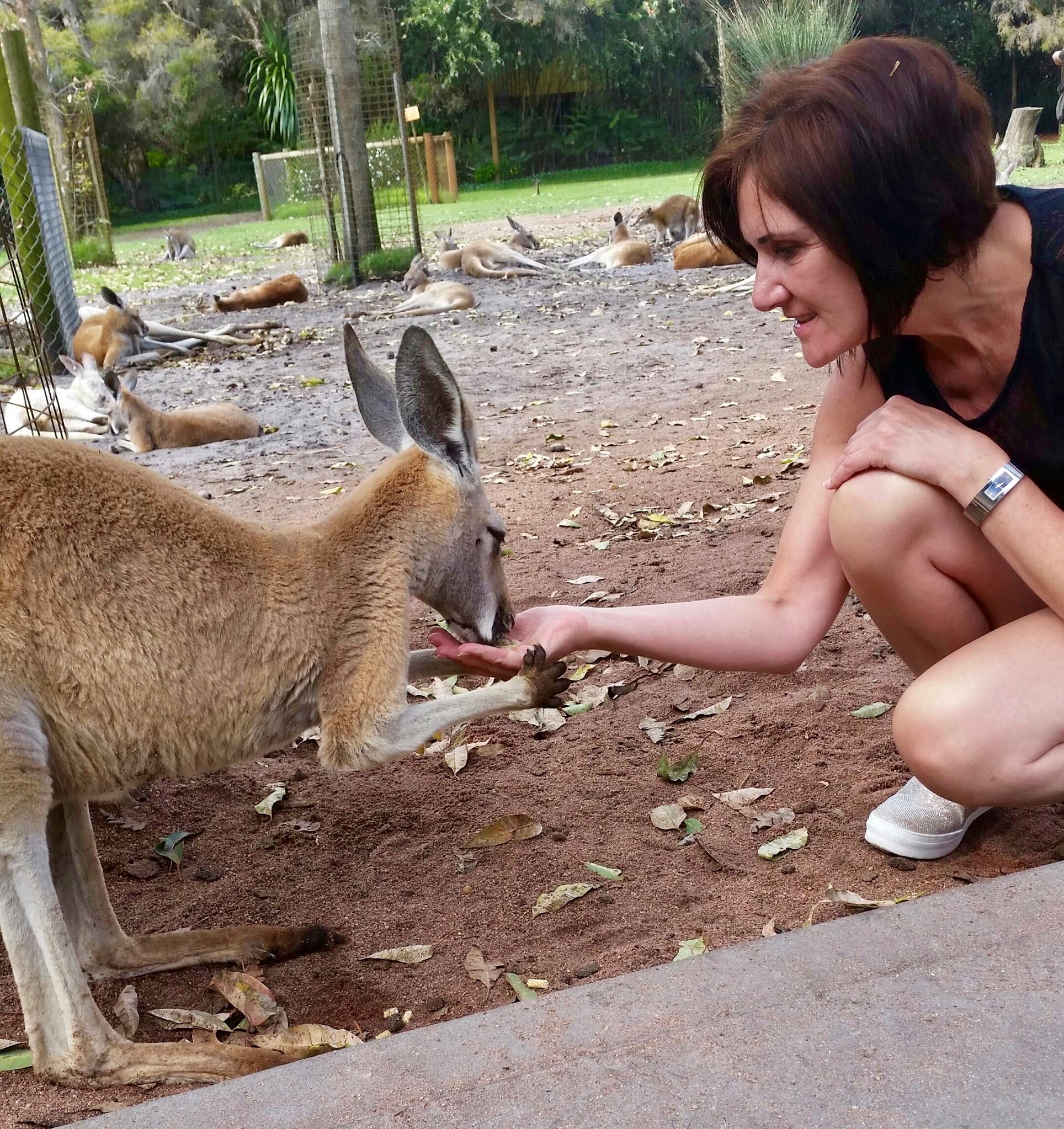
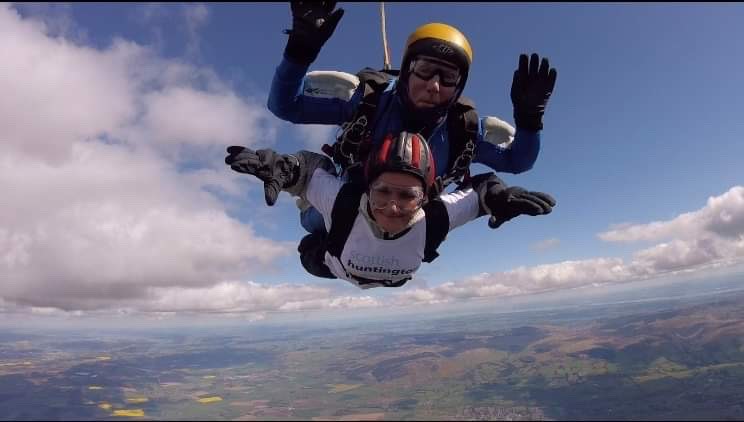
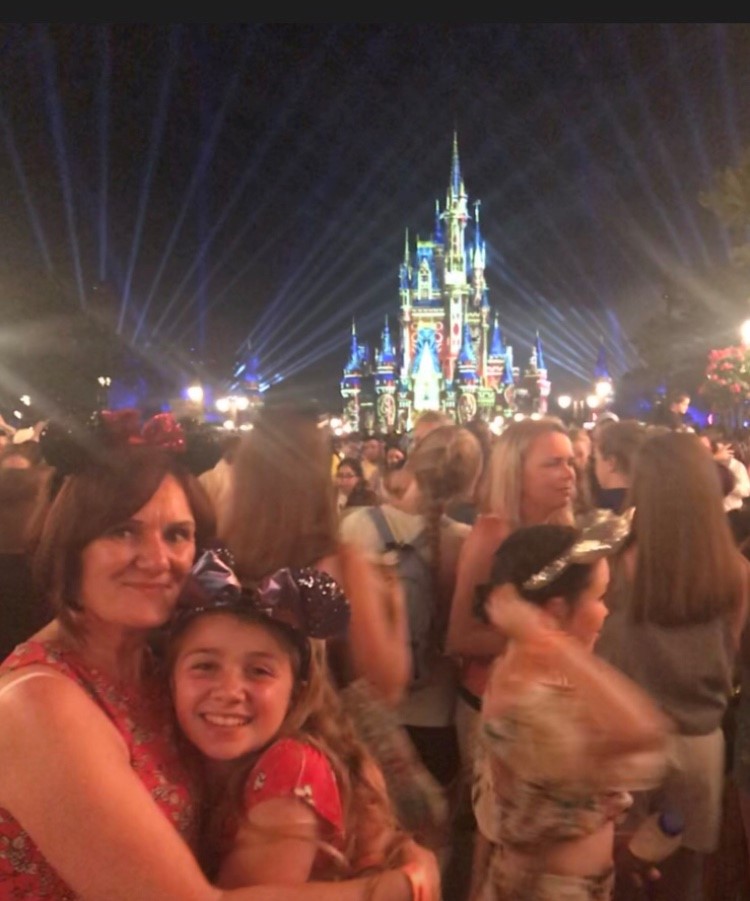
Huntington’s came into my life later on. We had no history of Huntington’s in the family that we were aware of. It came out of nowhere.
My Mum’s Mum had died at 41 from a heart attack before my Mum was even married. My Mum then had a heart attack herself when she was 40, and had a lot of health problems following on from that, mainly related to heart disease. When she began to develop more unusual symptoms, doctors put it down to strokes or complications of her heart operations and that sort of thing. It didn’t seem to occur to anyone at this stage that it could be something else.
Things dragged on and it was several years later, in 1999, that Mum eventually went to see a neurologist. After being tested for basically everything, Huntington’s came up out of the blue.
We got the news a month before I was due to get married and it was a huge bombshell – especially learning that it was hereditary, which meant that my older sister, my older brother, and me, all had a 50% chance of getting it. My brother and sister both made the decision not to be gene-tested, and just kind of got on with their lives.
I however knew straight away that I would probably want to be tested at some point. I needed some time to absorb it all first though, which wasn’t easy with an upcoming wedding and Mum’s declining health.
Immediately after the wedding, our thoughts went to our decision to have children. We had both really wanted to – were we still going to try? At this point I was only ‘at risk’, nothing was certain. There were no pre-natal options available to those at risk back then, so it came down to hard facts and tough decisions. If my Mum had known she was at risk and had chosen not to have me, I wouldn’t be here and lived the wonderful life I had. Also, Mum was late onset, so there was a good chance that if I did have the gene that I would also be late onset. There was lots of time before things got tricky. It seemed to make sense just to go on and at least try and start a family, after all we didn’t even know if we would be able to. We left it in the hands of fate, and I got pregnant within the first couple of months and went on to have three (wonderful) girls.
I tried to put the thought of being tested out of my head but in reality the thought was there all the time throughout my marriage. I started the testing process a couple of times in those early years, but I clearly wasn’t ready, as something always stopped me carrying it through.
Unfortunately, over time, my husband and I grew apart. Despite trying hard, we realised it wasn’t going to work. Somewhere along the road of the counselling I was having during my marriage breakdown, I started thinking about the idea of testing again. So, in the end, I got tested right in the middle of my separation! This time I was determined, and once I’d made my mind up, there was no stopping me.
Getting tested was a real turning point for me. I had struggled at times with low mood and anxiety during my marriage. My Mum had died of heart failure in 2001 two years after her diagnosis and that had hit me hard. Bizarrely enough, despite becoming a single parent and finding out I had Huntington’s all at the same time, I now found myself in the best mental health shape I’d known for years! The uncertainty had been torture, but now I felt a sense of relief, and I felt empowered. I immediately started working on my bucket list.
Although I’m very content with my life, a bit of romance would be the icing on the cake, and I feel like I’m in a great place to find somebody new. I think I would be more comfortable in a relationship now than ever before, I know what I want and what I don’t want, and I reckon that I’d make a fantastic partner! But dating isn’t easy. I’m pretty sure most women in their fifties find online dating a challenge, but when you throw Huntington’s into the mix it’s even harder! It is always on my mind, how quickly should I tell somebody?
Huntington’s is a big part of my life and because I do a lot of work with our charity, I’m pretty ‘visible’ online, so I’ve had to drop the HD bombshell on dates much earlier than I would have liked. Unfortunately, this has led to many men disappearing quickly after, or me being “friend-zoned” before they have really got to know me. It’s not ideal, but I guess it may be a way of quickly weeding out those who can’t handle it!
The thing is I do have reasonable expectations. I now have the experience to have grown past the fairytale fantasy. I’m strong and independent, and all I’m really after is some good company and romance. I think everybody thinks I’m after a live-in life partner, or heaven forbid, a future carer. I do think that people shouldn’t write off those with the Huntington’s gene too soon. Give it a chance – really get to know them – it might just pay off – I personally think I have a lot to offer.
My girls are now 13, 18 and 20. They didn’t know their Gran, so all they have really known of Huntington’s so far is me, and I’m thankfully still asymptomatic. They are absolutely amazing! I’ve always encouraged them not to worry about me, because I’m not worried, and also not to worry about themselves as Huntington’s is a long way into their future, if it is there at all. They are so supportive and positive of everything I do, both when it comes to raising awareness of Huntington’s, fulfilling my dreams and ticking things off my bucket list – which has so far included fire walks, a skydive and my upcoming wing walk with a loop the loop!! Life is so important, so valuable, and I don’t want to waste a single minute, as my time is precious. Huntington’s doesn’t define me, but it has presented some great opportunities. Telling people my story has improved my confidence, and I got to meet the gorgeous actor George Rainsford as part of this campaign – and that was AMAZING!
I can genuinely say that I am happy with my lot. I think anyone who meets me would describe me as a positive, upbeat person, and it is strange but true that that positivity really only came after I knew that this was my life and my destiny. I stopped sweating the small stuff and my old worries and anxieties disappeared. I knew what I was dealing with, got to know myself, and buckled in for a new life, one to enjoy and make the most of. I know not everyone feels that they can manage that outlook, but I hope that for people who are just starting out on their journey, they can see that this can be a beginning as well as an end.
Gillian McNab, Scotland
Staying strong as a family
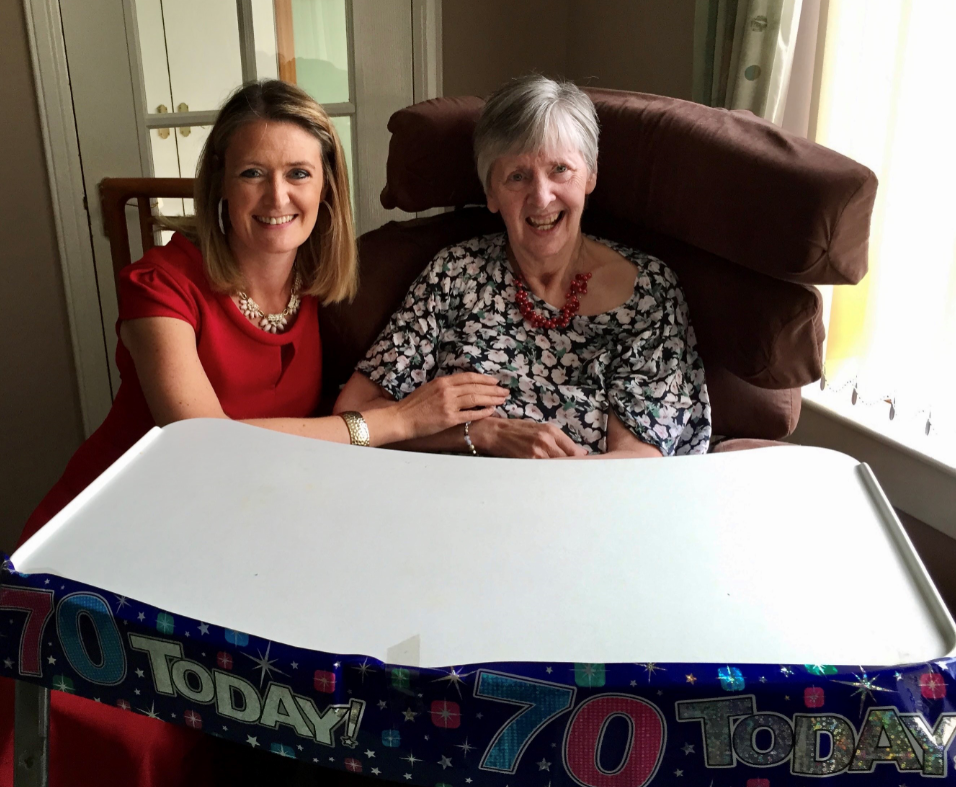
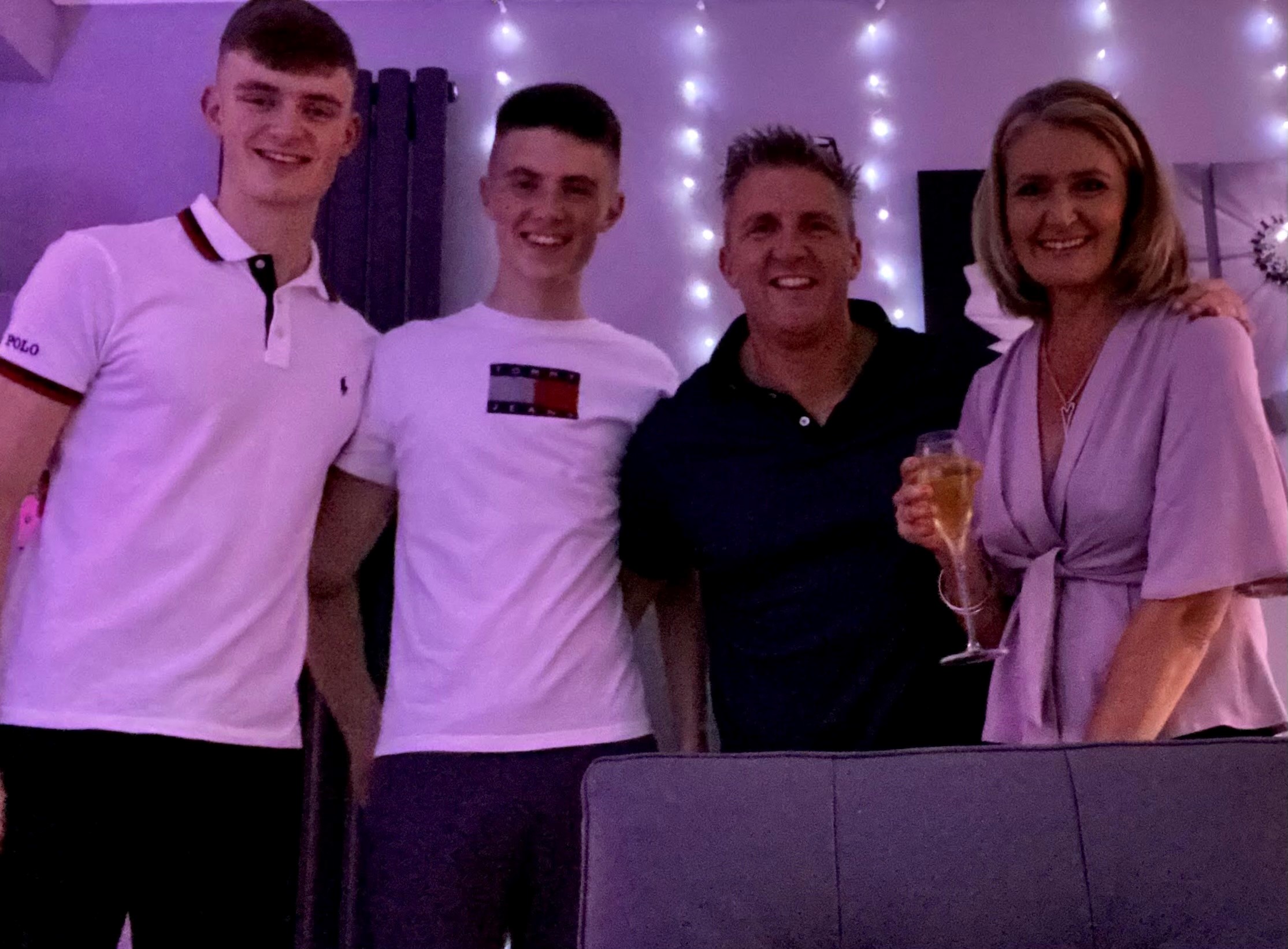
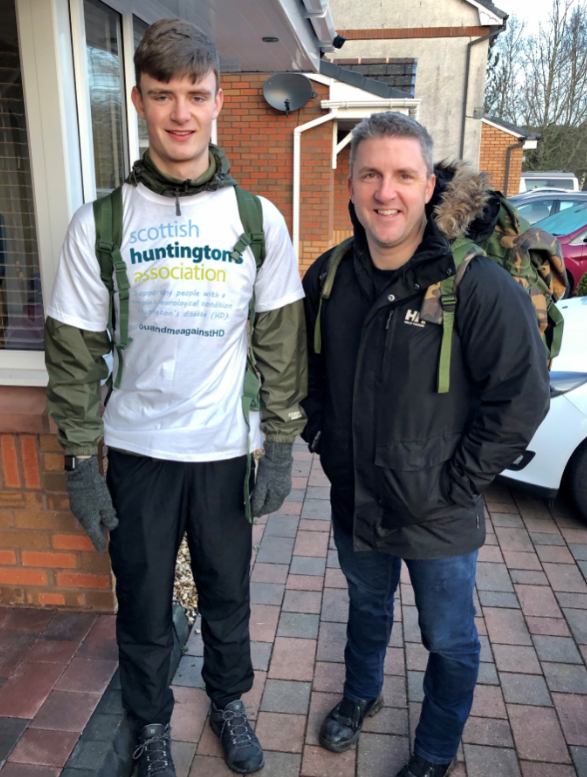
We spent the first few years of married life completely unaware that I was even at risk of inheriting Huntington’s disease. It was a disease we knew little about because, to our knowledge, no one in the family had ever been affected.
Then, after 10 years of physical and mental health problems including balance issues, mood swings and behaviour changes, my mum Margaret was diagnosed during a long-term hospital stay.
A nurse looked at Mum when she was admitted then asked us if we had Huntington’s disease in the family. We didn’t know anything about the disease so I Googled it when we got home. We were in total disbelief, we thought, ‘there’s no way Mum has this’. But we did start to ask doctors and psychiatrists until eventually Mum had a CT scan and was tested.
When the result came back positive for Huntington’s disease, it did answer a lot of our questions about how much Mum had changed and deteriorated over time. She was an incredible woman, we all loved her very much. We took her home and I was privileged to look after her for 12 years until she passed away. That’s what Mum wanted and we wanted that for her.
Then, after we lost Mum four years ago, I decided it was time find out if I have the faulty gene too. I wanted to get in front of it before any symptoms started.
The test came back positive and we’ve talked about what that means for all of us as a family. We don’t speak about it very often and I have no symptoms, but our sons understand what might be ahead. I don’t worry about me nearly as much as I worry about Aidan and Max, but for now we’re all doing OK.
We are especially thankful to know there’s help from Scottish Huntington’s Association should we need it and we are keen to help make sure all families in the HD community are able to access specialist support.
For my husband Guy, a police officer, and our son Aidan that meant taking on a gruelling mission – the Virtual Special Forces Inverse 360 Challenge. Guy’s brother Robert Henry suggested it then Guy decided to raise money for SHA at the same time. Things spiralled from there and they reached their £200 fundraising target in 24 hours.
They had to walk 300km in 360 hours, all while carrying a 45lb backpack, and were out for at least five hours a day, finishing well ahead of schedule. It’s such a tough challenge that loads of people drop out, and Guy and Aidan were amongst the fastest finishers.
At the last count, nearly £4000 has been donated through the JustGiving page. Our friends, family and work colleagues are brilliant. Guy and I are very proud of Aidan too, there were days when the weather was horrendous and it was tough going. But he never gave in.
Carolyn Jenner, Scotland
Life as a full time carer
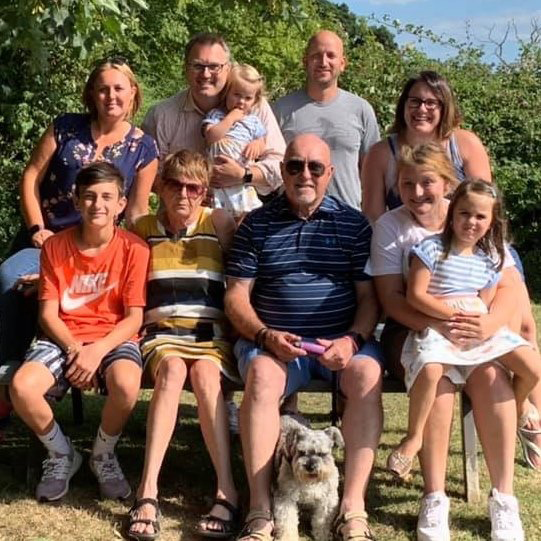
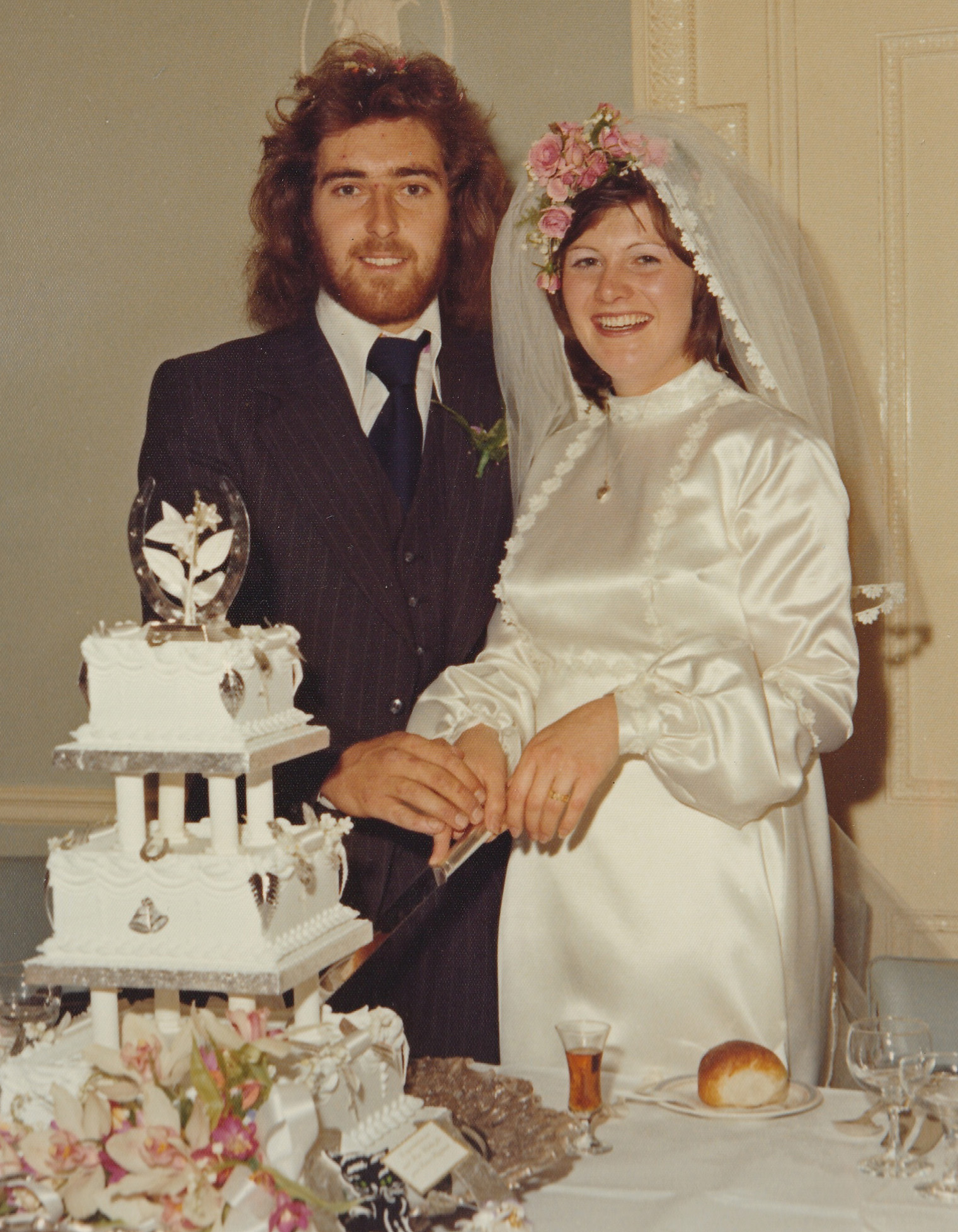
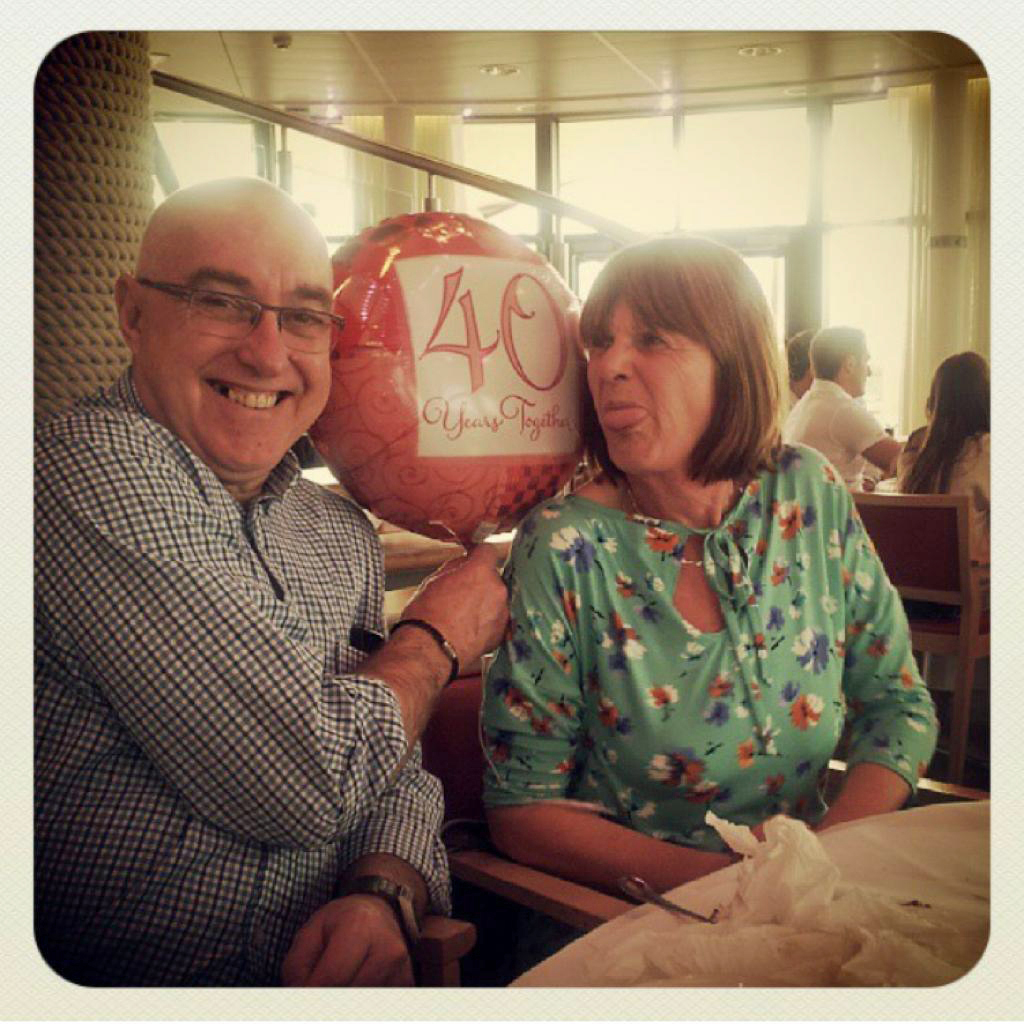
I’m a full time carer to my wife Sandy, and I’m so pleased that I have the chance during this campaign to talk about our experiences and hopefully help people understand a little bit about what caring for somebody with Huntington’s is like.
I started going out with Sandy in 1969. I was 17, and she was 16, so we were very young. Our first date was at a Halloween dance, (she tells me it’s been a nightmare ever since!) and we went on from there. We kept things going when I went off to university, and that was it really, looked like we were going to be stuck together ‘til the end!
In those early days, I knew that there was something wrong with her mum, I’d been up there to visit once or twice and it was quite obvious that something wasn’t quite right, she was behaving very oddly. But I didn’t think too much about it. She was diagnosed in 1970, and ironically, at that time I was studying for a degree in genetics, so I had the chance to read up all about it. I guess I did realise at that point that there was going to be a chance that this would come into our lives, but fates were sealed by that point, and we were very much together. And, when you’re that age you feel a little bit invincible and the future seems a very long way off, so I just didn’t really worry too much about it.
Sadly, Sandy’s Mum was eventually sectioned and institutionalised, as I think often happened in those days. And that was terribly sad and difficult all round. But we just got on with our lives as you do. We got married in 1973, and we were happy, both busy, working in different careers and then actually together for the same organisation. Our children James and Stacey were born in 1979, and 1982, and there we were, a busy family.
The genetic test came out in 1994, and Sandy was one of the first people to get tested. The children were really young, but we decided to tell them straight away, so they knew from the start. I have a treasured, but pretty sad, memory of us all huddling together in bed that first night we told them, so we tackled it as a family from the start. I was immediately vigilant, I was looking for signs of onset all the time. I’d done my research and thought I knew exactly what I was looking for. In actual fact, when the signs came I completely missed them.
Sandy’s first symptoms were behavioural, and we went through this awful patch when it was just unbearable. It felt as though our marriage was completely crashing, she was very hard to be around, it was really unpredictable and very difficult. With hindsight, I wish I had known that it was the onset of symptoms, because I’d have handled it differently, and probably managed to diffuse it, and get us through that period better. Instead, I reacted as a outraged husband, stood my ground and fought, claiming that it wasn’t fair to be treated like this and it just made the situation a million times worse. What also confused things was that she was going through the menopause at the time, so that made it harder to unpick too.
Anyone who is going through this will know how awful it is, but for us it did pass. Eventually, the real Sandy came back. Now, she tends to plateau for a long time, and then there is a dip. Things are progressing, of course, recently at a far faster rate than I have previously experienced. And my job looking after her is full-time.
I’ve learned to be a good carer. I’ve learned the art of patience, and I’m not perfect, some days I will forget to open the book at the patience page! It is relentless, but I do my best and it’s important to me that I do it well. You have to build a bit of a shell, and protect yourself a little bit. I can look at things quite dispassionately sometimes which helps. I read quite a lot about Huntington’s, and try to stay informed, and that way I know I’m basing my decisions and my actions around an evidence-base if you like. I find that really helpful. It’s just the way that I am but we are all different.
It’s not easy. It’s not exactly the retirement I had planned. It’s sad but true of course that plenty of spouses actually walk away. That’s not me, I made my vows to Sandy and I’m here for the long haul. Generally im a pretty resilient character but when I do have my dips, which is not very often and usually when I’m tired, it tends to be late at night, when the day’s caring is done. I can feel quite sad about the enormity of our situation, possibly shed the odd tear but then I just tend to have a bit of a stern word with myself and pick up and carry on. There’s not a lot of choice really!
I’m particularly good at fixing the practical things. As Sandy’s physical needs change, I’m great at sorting house adaptations, bath seats, shower rails, that kind of thing. I can take that all in my stride. And I find I cope quite well with her cognitive symptoms too actually. The bit I struggle with the most is the communication and we are losing that now really. It’s quite hard for anyone but me to understand Sandy now, and it’s not easy even for me.
We are trying out different things, the Ipad doesn’t seem to work as she’s not really techy. So we are looking at a picture board. It’s experimentation and we will find the right solution. It doesn’t seem to bother Sandy, she doesn’t get upset about it. It mostly impacts me, I don’t have proper conversation in my life day to day, and it can be quite lonely. But also partly because I miss talking to my wife. All the conversations we have had over the years, and we can’t really do that anymore. So I am grieving that part of our relationship, and that bit of her. I keep losing bits of her unfortunately, and that is hard. Fortunately her sense of humour, which is usually aimed at me, appears to be intact!
We are incredibly fortunate that our children have both tested negative. That means that our grandchildren will not be at risk either. So it will end with us. But it hasn’t been easy for our children of course. They went through the mill with me when Sandy went through the particularly bad patch. They had to think about testing. My daughter decided to have children quite young, so that Sandy could enjoy being a grandmother, which was marvellous but obviously it was a decision influenced by the Huntington’s in our family. My son seemed resolutely single for a long time, until he had his negative test result, and then he settled really quickly after that. So I think that the concern was obviously holding him back. We never really talked about it and that I regret. Once it is in the family it affects everything.
I know that the people who have it come off worse here, but what we do is a tough gig. I work really hard, my back and legs are wrecked, physically, from the lifting, and carrying and supporting. I have a really great relationship with our local Community Neurology Service but it can often be a battle with some support services, which, quite frankly I could do without! Sometimes I have to push very hard and I have no hesitation in being really clear and playing the full time carer card. I’d advise anyone in my position to do that to be honest. I find myself thinking and planning ahead a lot, what happens if something happens to me? How do we manage that as a family?
There’s a lot of stuff people don’t realise about what ‘caring’ actually means. And that’s before you even get to the emotional impact of your wife, your partner, only being able to communicate with you in single words, and knowing that one day you might not be able to give them the care they need at home. I don’t think people realise the full weight of caring responsibilities. Sandy has some professional carers come in, it used to be for 12 hours, but we’re up to 18 hours which really helps. And our carers are absolute diamonds for whom I have the greatest of respect. I don’t have any choice here but they do and I’m full of admiration. But in reality that still leaves me with 150 hours caring a week to do. If you think about it, us unpaid carers are really saving the health and social care system an awful lot of money.
Sandy has never once, to my knowledge, said, ‘Why me?’ She has taken this in her stride as far as she can. She has the love and support of her family, and some amazing, unbreakable friendships with wonderful women who care for her and have fun with her the way they always have, regardless of the Huntington’s. They are friends to me too, giving me respite, checking on me, as do my family. I think if I have advice for other people in my situation it is to reach out and get support, outside contact, people who care and who will be there through thick and thin. Even when you are pretty resilient, this can be a tough and lonely experience. My second piece of advice is not to worry about what may be around the corner and what bridges you may have to build. Huntington’s disease is a very complex disease so not everyone suffers in the same way (as I was once told ‘Once you’ve met one Huntington’s patient – you’ve met one Huntington’s patient!’) but I would say that you need to get as much knowledge as you can and get the necessary tools in your kitbag, so that if you do have to build that bridge then you are as prepared as you can be.
I’m really hopeful that this campaign will help people understand what Huntington’s is like for everybody involved. Telling the stories of different people is important, and it gives a glimpse into our lives. I always say, ‘Walk a mile in my shoes…. or in fact, just a couple of hours, and you might get an idea.’
Steve, age 68, Poole, Dorset
Facing the future
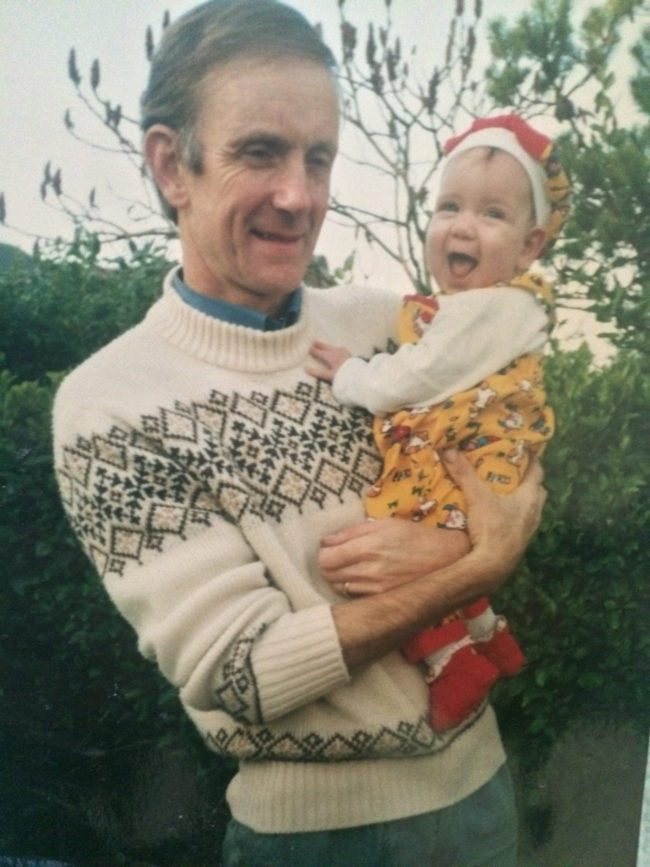
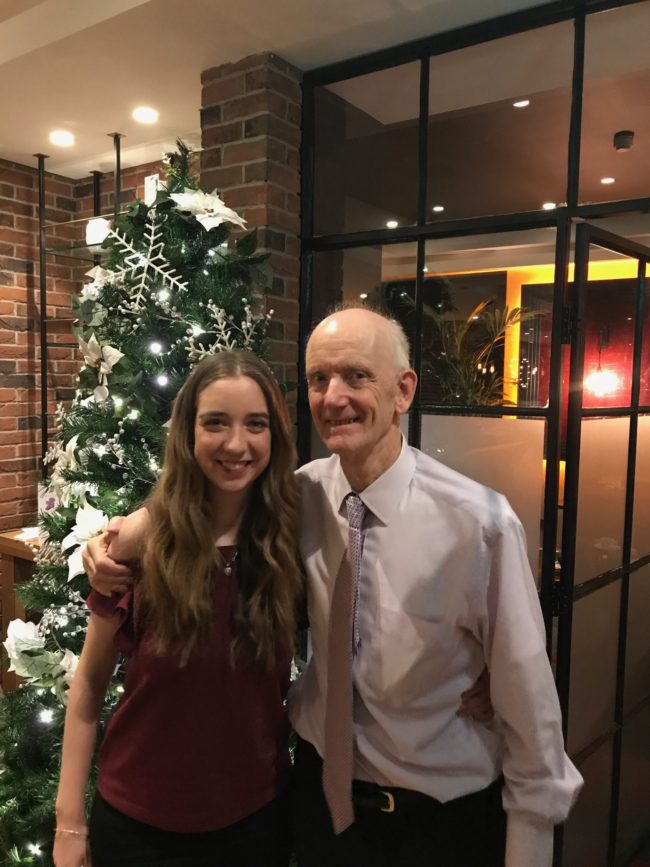
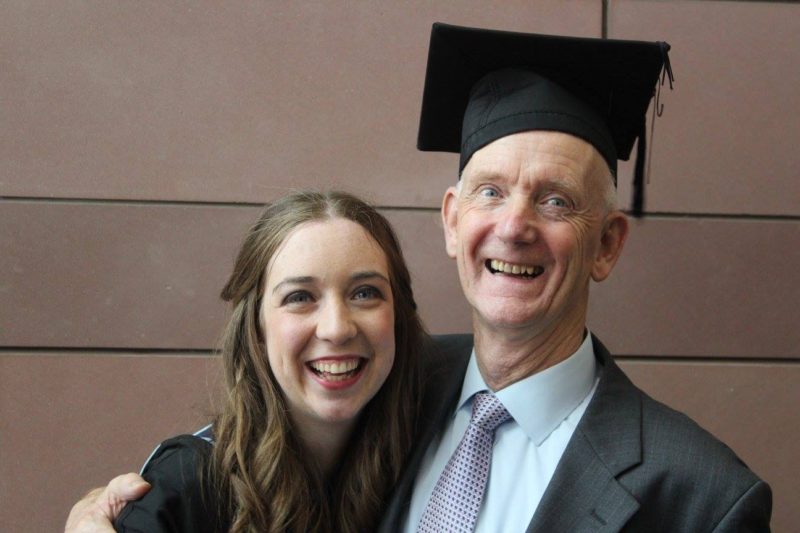
Hello, my name is Joy and I am a 27 year old school teacher living in Yorkshire, but I am originally from Cork, in Ireland, where I have lived for the majority of my life. I am currently at risk for Huntington’s disease and I have chosen not be tested at this time.
Huntington’s entered my life the summer of my 20th birthday. I had just finished my first year of Drama at university, I had a great job and life was pretty good. When I was 14 my Dad had a stroke but recovered quite well and even went back to his job as a postman until his retirement.
My Mom (a retired nurse manager) started to notice some subtle, unusual symptoms in my Dad in the years after the stroke. During this time my Dad’s first cousin in the UK received a diagnosis of Huntington’s. My Mom put two and two together and asked our GP could he get the test.
I remember at the time thinking that surely my Dad couldn’t have Huntington’s, the chances were so low. I remember talking about it with my mother and my older siblings (three sisters and two brothers) . Dad had other older siblings who were fit and healthy and his mother died in her 80’s of a stroke. It seemed very unlikely that Dad would test positive. The test was only a precaution as Dad (at this point in his mid 60s) didn’t display the usual Huntington’s symptoms.
I didn’t think about it much to be honest, I was too busy loving life and feeling grateful for my friends, family and my beloved nieces and nephews. My parents were retired, doted over their grandchildren and had bought a caravan and new car. They had major plans for the future entering the next exciting phase of their lives in their retirement.
I will never forget the day my sister picked me up in Cork City on a gorgeous sunny day and told me Dad tested positive for Huntington’s disease. I was shocked, upset and numb. I felt sick, confused and completely and utterly devastated. I became overwhelmed thinking about my father’s future. My Dad, my rock, the pillar of our family. I began to mourn the future I wasn’t sure that I would have, and then the worry began for my siblings, nieces and nephews and mother. I felt as though my amazing family were cursed and the worry was crippling, with little to no hope in sight. My boyfriend at the time was such an incredible support for me. I felt I couldn’t go to my family with my anxieties as I did not want to burden them, as we were all going through the same thing. This was a first for me, as I would always turn to my family for support.
That almost eight years ago. My father has deteriorated, but can still walk, eat, talk, hug his grandchildren. The disease did not progress in my father in the ‘usual’ way which was incredibly misleading. Two other families who live in our estate also are Huntington’s families, which leads me to believe it’s not as rare as what people think.
Initially when I researched Huntington’s I thought my Dad would be dead in a year or two. I also thought that by now I could be showing symptoms if I was positive. However, this was not the case, Dad is still here, and we are all living very busy lives. One of the websites that gave me real hope, as well as lots of information, was HDYO. I cried when I found it because it was so different to so much of the information on the web. It had information about testing, about late onset and Juvenile Huntington’s. It showed people living their lives and supporting each other. Reading the HDYO website and watching their videos changed my life and outlook, for the first time I felt hope. I began counselling and slowly started to find joy in life again!
The Huntington’s Disease Association of Ireland has been an incredible help to me and my family over the years. They provided me with free counselling sessions and have been instrumental in creating memories over the last few years. This included attending the HDYO European Youth Camp for a week in Kent. There I met young people from all over Europe who were in a similar situation to me. We attended outdoor activities events, discussion sessions, and met world leading scientists. And we laughed and we cried. This experience really helped build my confidence and I began to have hope for my future. In 2018, my Mom and I were also given the opportunity to travel to Rome with other families from Ireland and we met the pope in a worldwide Huntington’s disease event. After these experiences I certainly did not feel alone anymore, suddenly I had a wealth of people I could talk to and life started becoming a lot more optimistic.
Some of my closest friends have been a big support to me over the years. I know talking to some of my friends that they worried a lot about me, and I think they are equally a part of this story. One of my best friends, who completed her MA in Playwriting, wrote a play on Huntington’s for her dissertation, which was amazing! I feel like I have a strong community of friends and colleagues who support me.
I think about getting tested a lot, but often put it to the back of my mind. I am happy holding on to the hope that I have a 50% chance of not having it. Perhaps this will change if I want to have children in the future. Dating while being at risk can be complicated too. Should I tell him I’m at risk at the beginning? A few months in? For now, I am waiting for the right man to come around.
I had initially planned to do a video interview for this campaign but decided last minute against doing it. Mainly because of the fear of the internet and wider world knowing about my family history so publicly. This is difficult for me because I feel we need more awareness but we are all too afraid to talk about it. By talking about yourself, you as a result are talking about your family too and sharing information that they may want to keep private.
This has had a huge impact on my life. At times it is frustratingly sad and difficult and other times life is still so normal. My family is so close now and we are in absolute awe of my Dad who has faced Huntington’s like a warrior. My mother (his carer) has shown him so much love and they are both enjoying life to the fullest. We are all so supportive of each other and I tend to live life day by day. I enjoy precious memories with my family, and they are always face timing and calling me whilst I am here in the UK.
Who knows what the future holds but I will face it with optimism, grit, hope and joy! 🙂
Huntington’s and me
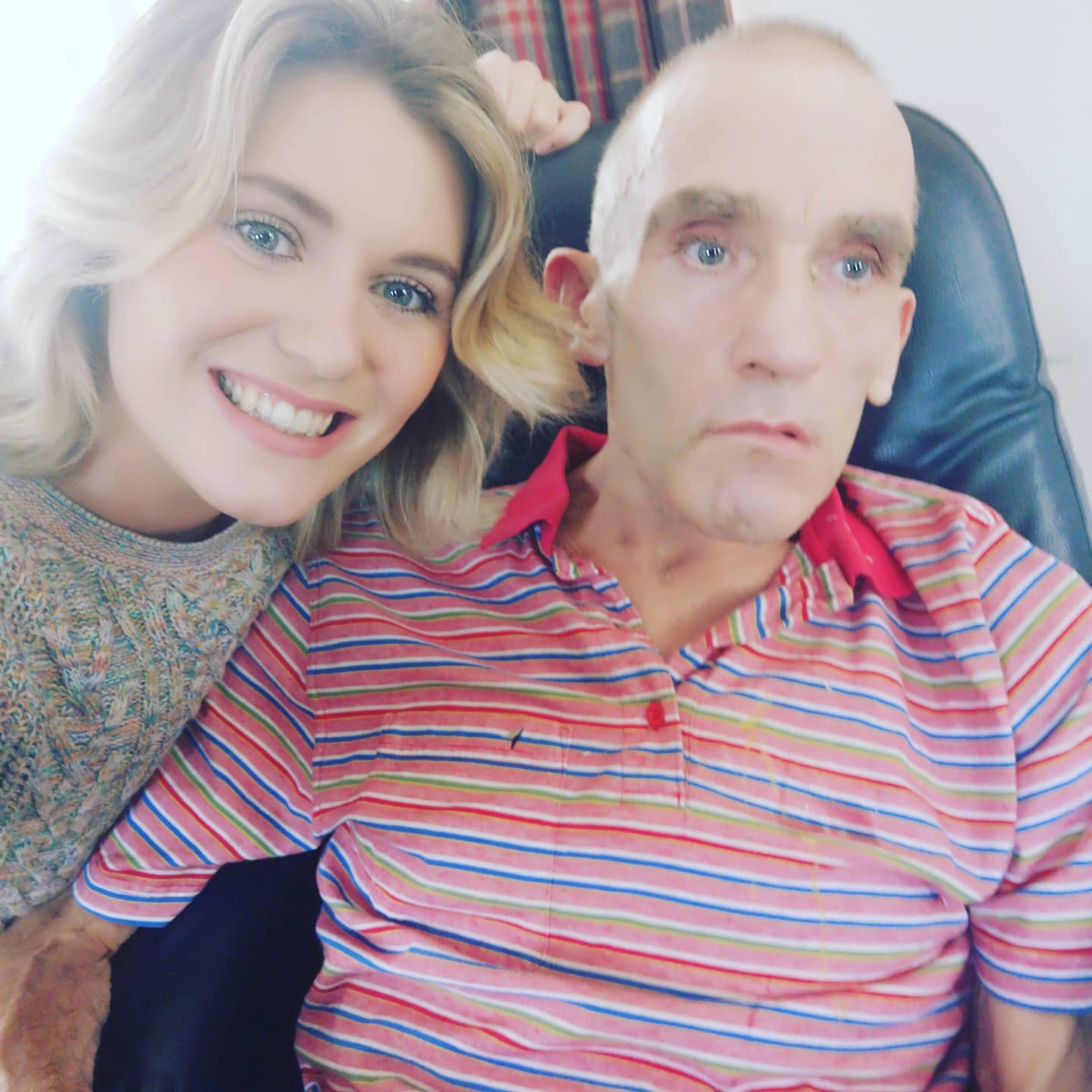
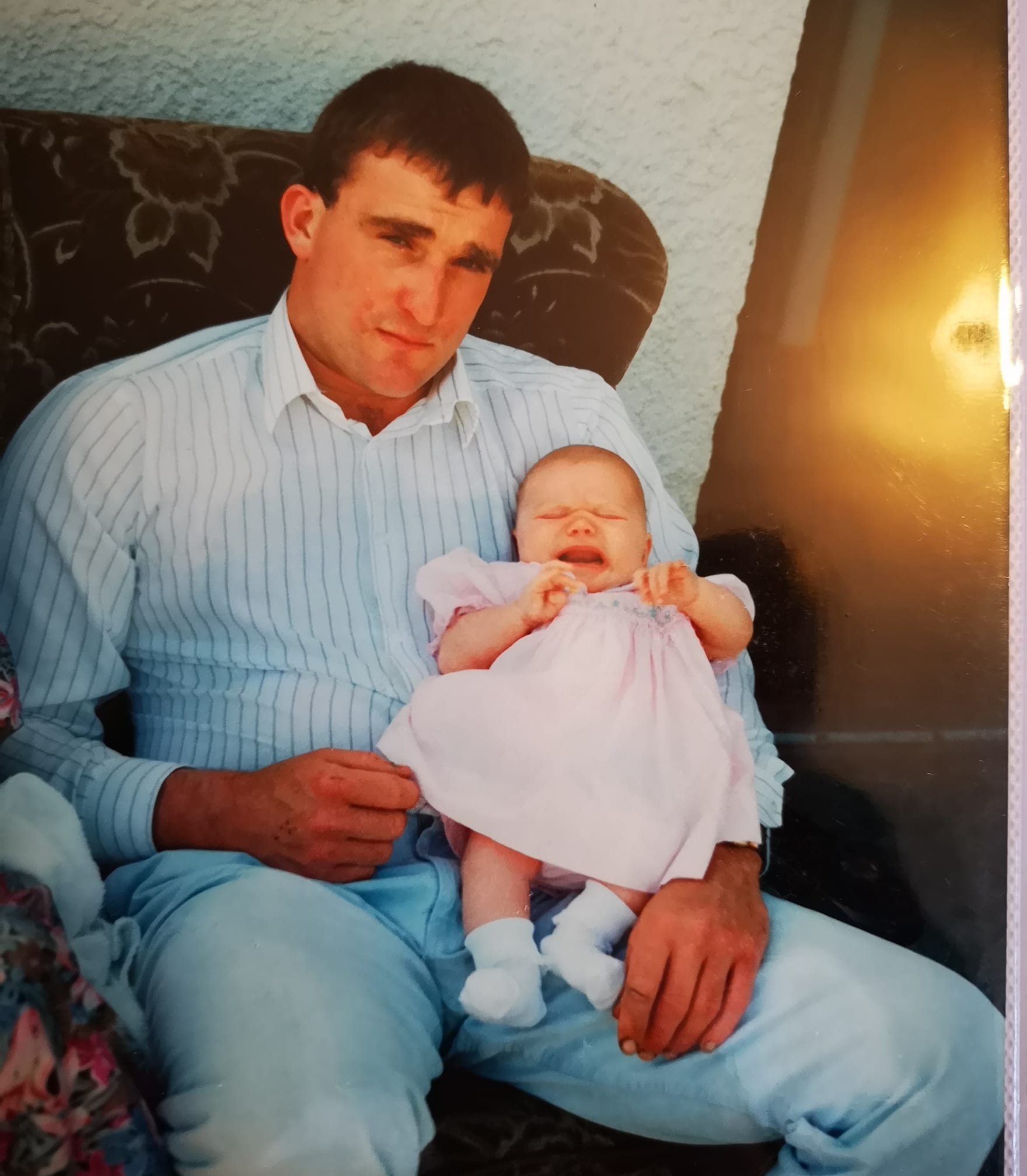
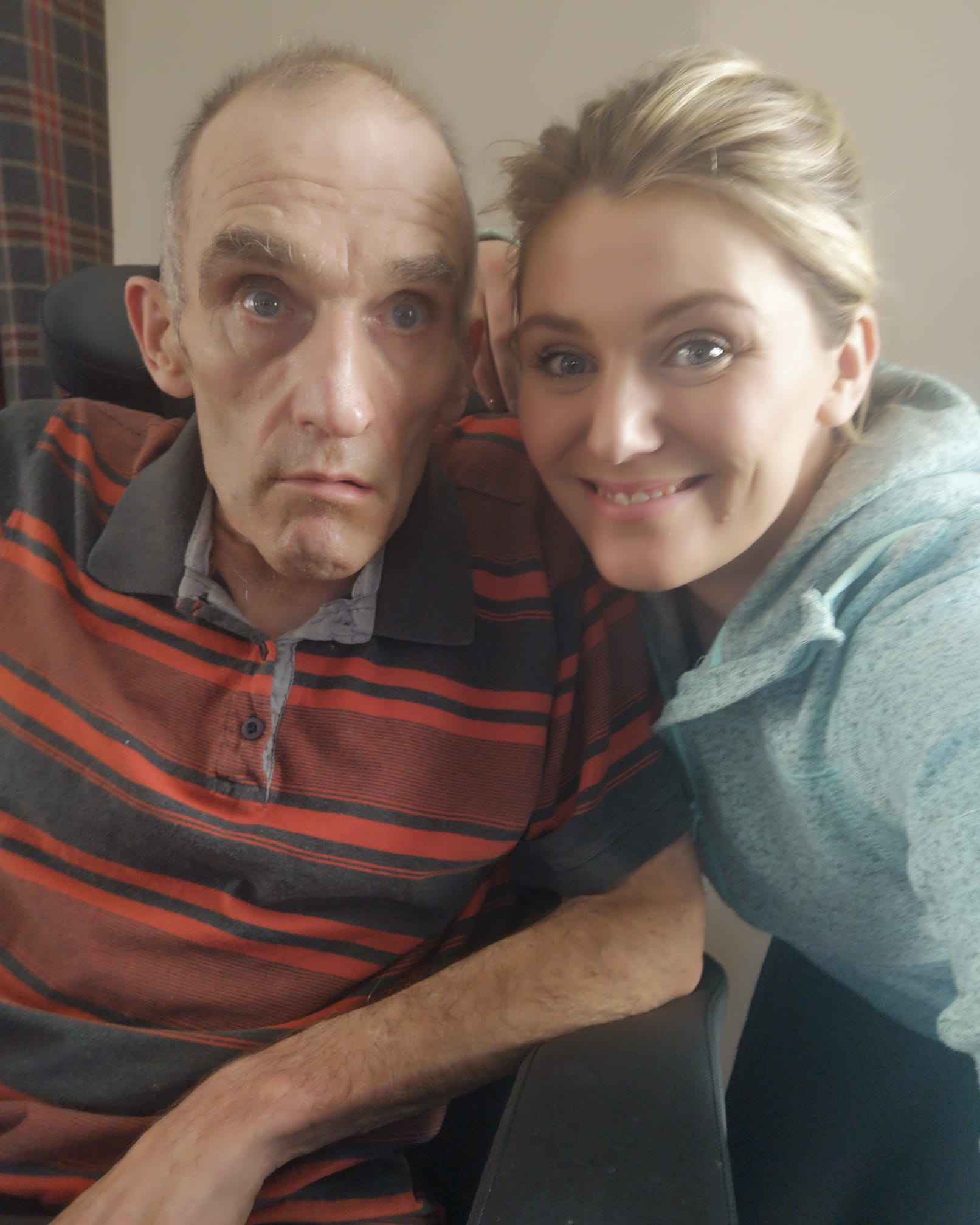
Huntington’s Disease can affect people in many different ways, and it certainly affected my life in a big way.
Everyone affected by Huntington’s Disease has a story, some are similar and some are very different, everyone has different stories, experiences, and as we all know, Huntington’s disease is different in each person.
After many years of coming to terms with Huntington’s Disease and the impact it has on my life, I truly do believe that the best thing I can do is raise awareness, talk about Huntington’s and try to reduce the stigma of Huntington’s. I believe this is my way of turning something that is and can be very negative in my life, into a positive. There is an awful stigma around Huntington’s disease, where people are scared and ashamed of what others will think. I believe reducing the stigma and talking more about HD is the most important thing we can do, people and families should not feel ashamed about this disease, children should not wonder if their friends will understand and HD patients should not feel ashamed of the genes!! Something none of us can control!
I want to share with you a brief history of my life, and hopefully share how speaking out about this has helped me over the years.
When I was around 14 years old, my Dad was diagnosed with Huntington’s, and sadly our relationship was broken at the time. We had gone from the typical Daddy-daughter relationship to not even talking I was getting the brunt of his anger which was caused by the disease. Fast forward three years and at 17 I became a carer for my Dad, his fiancé left him, and he needed help with daily tasks. My brother Ryan and I rallied around with my Mum (Dad’s ex-wife) and got him the care he needed. We arranged for care assistants to visit him daily and my brother and I divided up the other tasks. At this point I was able to manage on my own, so my brother wasn’t needed as much, but as the illness took over my dad, Ryan stepped in more and more to help me. We became a team, sometimes a dysfunctional team, but we always had Dad’s best interests at heart.
At the age of 18, I was obsessed with being tested for Huntington’s, and to be honest from the age of 16 – 18 I thought it was unfair that they made you wait until 18 years old to be tested. I started the testing process, and after several appointments and months of upset, I decided to pull out before blood was drawn. This is a whole story in itself, but let’s just say 10 years on, I think it was the right decision for me at the time. I am at peace with not knowing and one day, when I find Mr Right, and decide to settle down, I will get tested. For me, children are a huge thing, and getting tested and children for me go hand in hand. This is a personal choice and I know everyone is different.
Over the years, dad and I fought, I cried, he shouted, we both laughed and took A LOT of selfies. It wasn’t always easy and there was a time where I was juggling A-levels/university, volunteering, one or sometimes two jobs, caring for dad, and my own personal social life. It was a balancing act and I didn’t always get it right. I was late to appointments, I forgot to bring his list of medication, I missed friend’s birthdays. Sometimes I didn’t have enough money to bring Dad somewhere and hang out with friends, so I let my friends down. I sacrificed a lot, missed out on some things, but always managed to get through the tough days!
My brother and Mum made it possible for me to attend university which was two hours away from Dad. My brother and Mum made it possible for me to travel to America for two summers to work at a summer camp teaching watersports. Friends and other people in our local community made it possible for Ryan and I to continue our education and get a break, helping Dad with small tasks. Simple things, when Dad would walk the minute to our local shop, they would deliver the large bag of dog food to his house, instead of having him carry it. If dad left money behind at the local pub when he had enjoyed a Friday night meal, they would call and let us know. Certain members of our local village community kept an eye on Dad when Ryan and I weren’t around.
Every Huntington’s story is different, some families have wonderful support systems, some don’t. Some families have a lot of help from their medical team and some struggle to get a social worker. Luckily, we have a good medical team (at times) and amazing friends. My Mum, Ryan and I worked together over the years to make sure Dad has had what he needed. It wasn’t always easy, and I hope those who are reading this understand that I am not trying to paint an image of a perfectly easy life, but I try not to dwell too much on the past. I could tell you about times that I left my Dad’s house because I was scared for my safety. I can tell you about the nasty things he said to me such as ‘I’ll burn you out of your house’. What good will that do though, it wasn’t really my Dad. My Dad loved me, and I choose to remember the times where he taught me how to drive a speedboat and played house with me when I was a child. I have more memories and years of Dad being sick than I do of him being a fit and healthy man, but I don’t want to resent my Dad, and I don’t want to blame him for the hardship I have endured. He didn’t ask for this life. None of us did.
Dad is 54 and lives in a nursing home close to my brother and I, so we can visit him regularly (pre Covid), and keep him up to date on what we are doing. I love sharing photos with him and telling him all the local gossip!
My life hasn’t been easy, but I don’t think it has been one of the hardest either. I am very aware that there are many people out there worse off than me. I try not to dwell on the negative, and remind myself of the positives that Huntington’s has brought into my life.
Huntington’s disease made me sit up and pay attention, I made memories with Dad when I could, and only wish I could have made more. I have made more friends around the world who are also affected by this and I cherish my friendship with them! I have met authors and attended some of the most amazing Huntington’s conferences and summer camps. I have made a career and hobby out of Huntington’s, writing about my experiences on the #ImNotDrunk Lifestyle Blog, sharing with others what it is like to grow up in a Huntington’s family, trying to help those who might be coming behind me.
I am thankful for what this has provided for me, and I am grateful for the journey I have had and whatever the future might hold for me. I welcome it as a new challenge and a new opportunity.
Ashley Clarke
Northern Ireland
Our Family & PGD Story

My husband may have Huntington’s Disease, we don’t know, and we don’t want to know. Six years ago I gave birth to our gorgeous twin babies and we know for sure that they don’t carry the gene.
Finding out my husband’s (boyfriend at the time) Mum had Huntington’s and immediately discovering that he also had a 50/50 chance of having it too was terrifying and heart-breaking, and all those other horrible emotions that bring you to a very dark place. I think it was harder since we didn’t know anything about Huntington’s at the time and we had to hunt for information to understand it. We did our research and there was of course lots of crying and worrying. At the time we got lots of support and information we needed from the Huntington’s Disease Association of Ireland and we finally came to a place of acceptance that this is something we may have to deal with in the future. After a time, life got back to normal and we put it to the back of our minds as much as possible.
Then we got married and decided we wanted kids. We were still not ready to find out if my husband has the Huntington’s gene and thought our only options were to either go ahead and hope our children would not have the gene or make a decision that we would not have children. I wasn’t comfortable with either option so spoke to our GP. She suggested PGD, which is an extra step in the IVF process where they complete a genetic test on cells removed from embryos to avoid a genetic disease for which a couple is at risk.
I spent some time on the internet researching clinics at home and abroad and sent an email to all clinics explaining our situation and setting out my main request – was it possible to have PGD but not find out if they found any embryos with Huntington’s disease? After all, this was our main reason for going down this route – we were not ready to find out if my husband had the gene. We were reassured to find out that this was possible.
This was something that we wanted to keep checking at the beginning. For example, we had to fill in in some standard forms about our medical history and myself, my husband and both his parents had to send blood samples to the clinic. I added a note reminding them that we did not want any results from these blood tests.
The whole process was actually okay. Although the clinic we chose was abroad I had to find a local GP to support me. My doctor at home was great, and the clinic overseas was lovely too. Everybody we met throughout the process was kind and supportive and it wasn’t too stressful or even too invasive. Along the way there were prescriptions, scans, some needles (!), an egg retrieval process that wasn’t as bad as I expected and then finally the egg transfer.
The whole experience really wasn’t as stressful as I expected, the worst part about it was the two week wait after the transfer. A whole two weeks of waiting to see if it worked. It did though and we couldn’t be happier.
If you decide to take this journey, I truly hope you are as lucky as we are. We now have six year-old twins and I don’t have to worry that they carry the gene. Yes, we still face challenges ahead with Huntington’s impacting our family and we may face more challenges in the future if my husband or sister in law have the gene but the medical world is always moving forward so I have hope that treatment plans or medical trials are always improving and that someone will find the breakthrough that the community is desperate for. Until then, it’s important to create more awareness so that people are aware of this disease so we can look to them to support our fight and so that they understand and support those that suffer from Huntington’s and not judge them incorrectly.
By Siobhan
Our family story
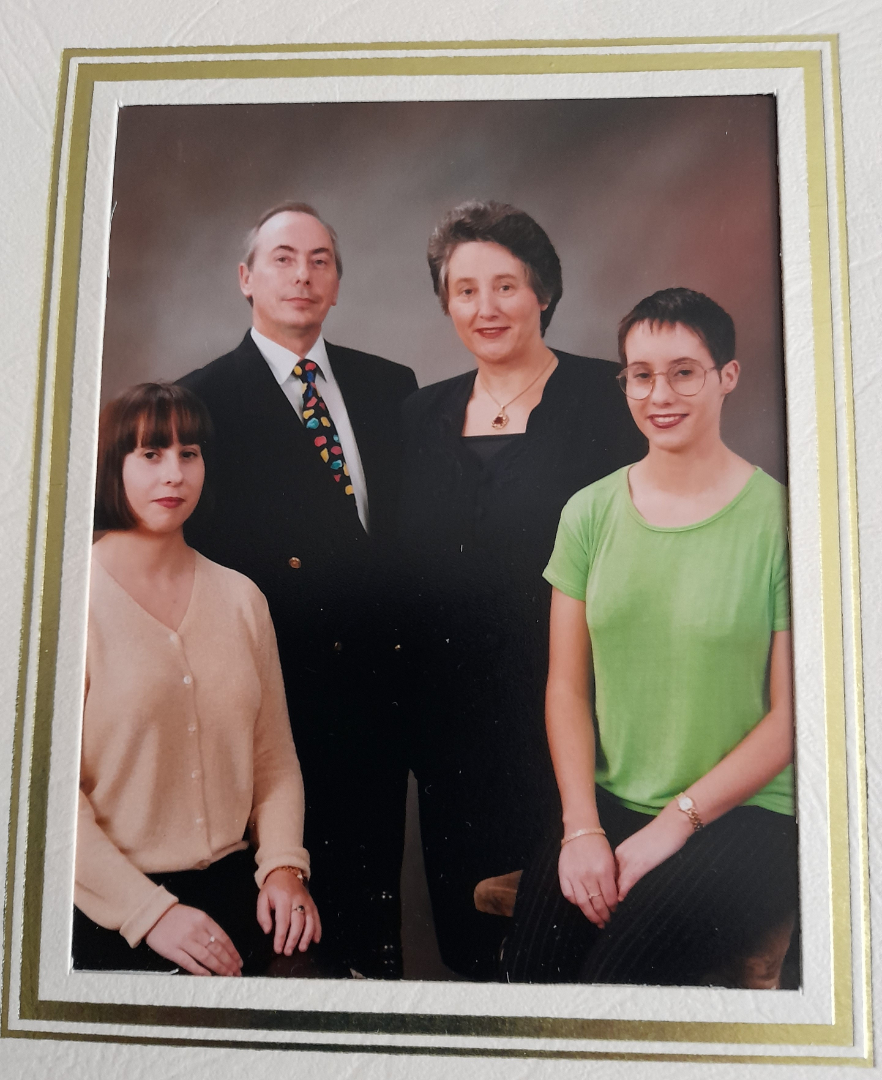
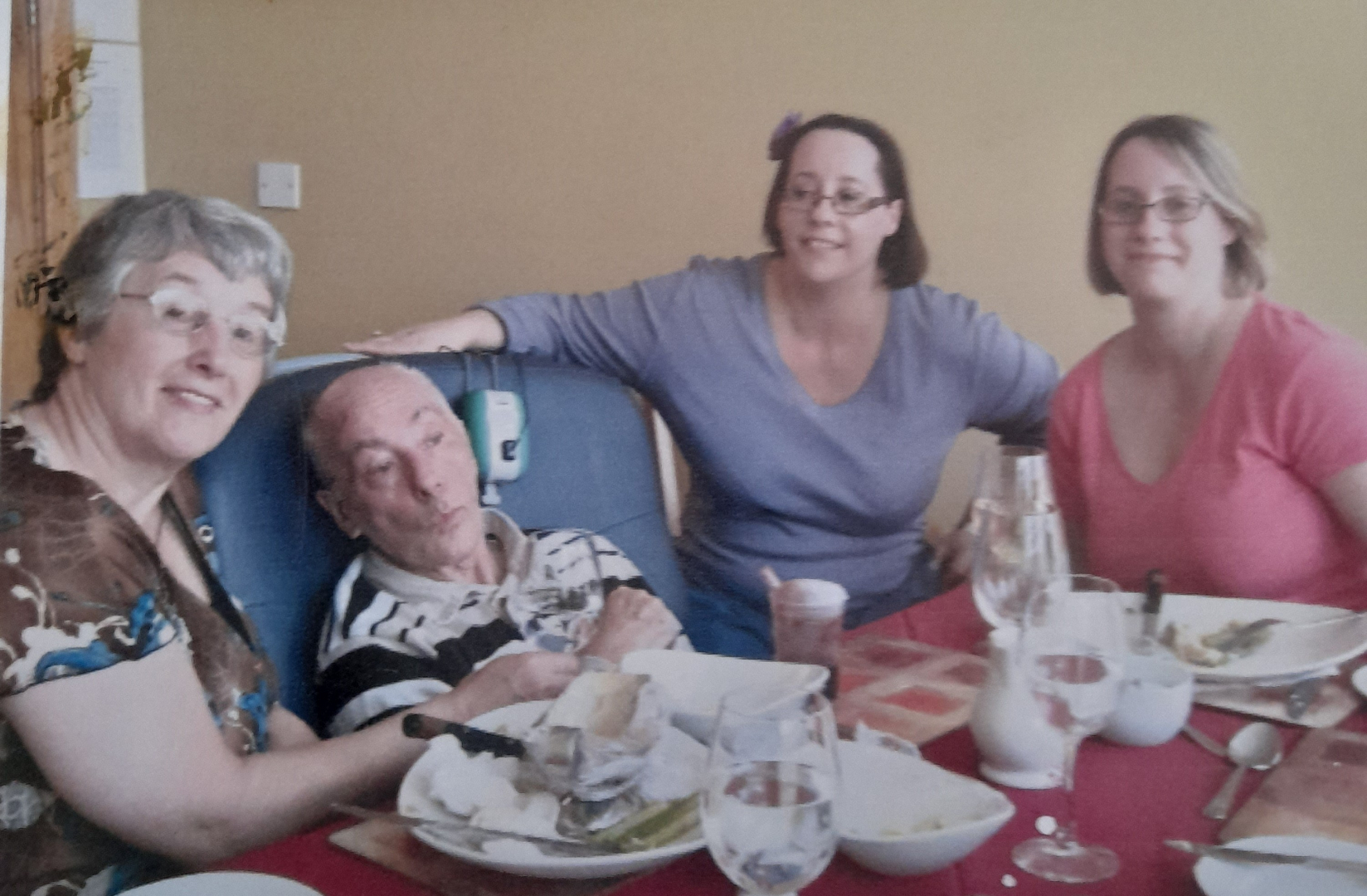
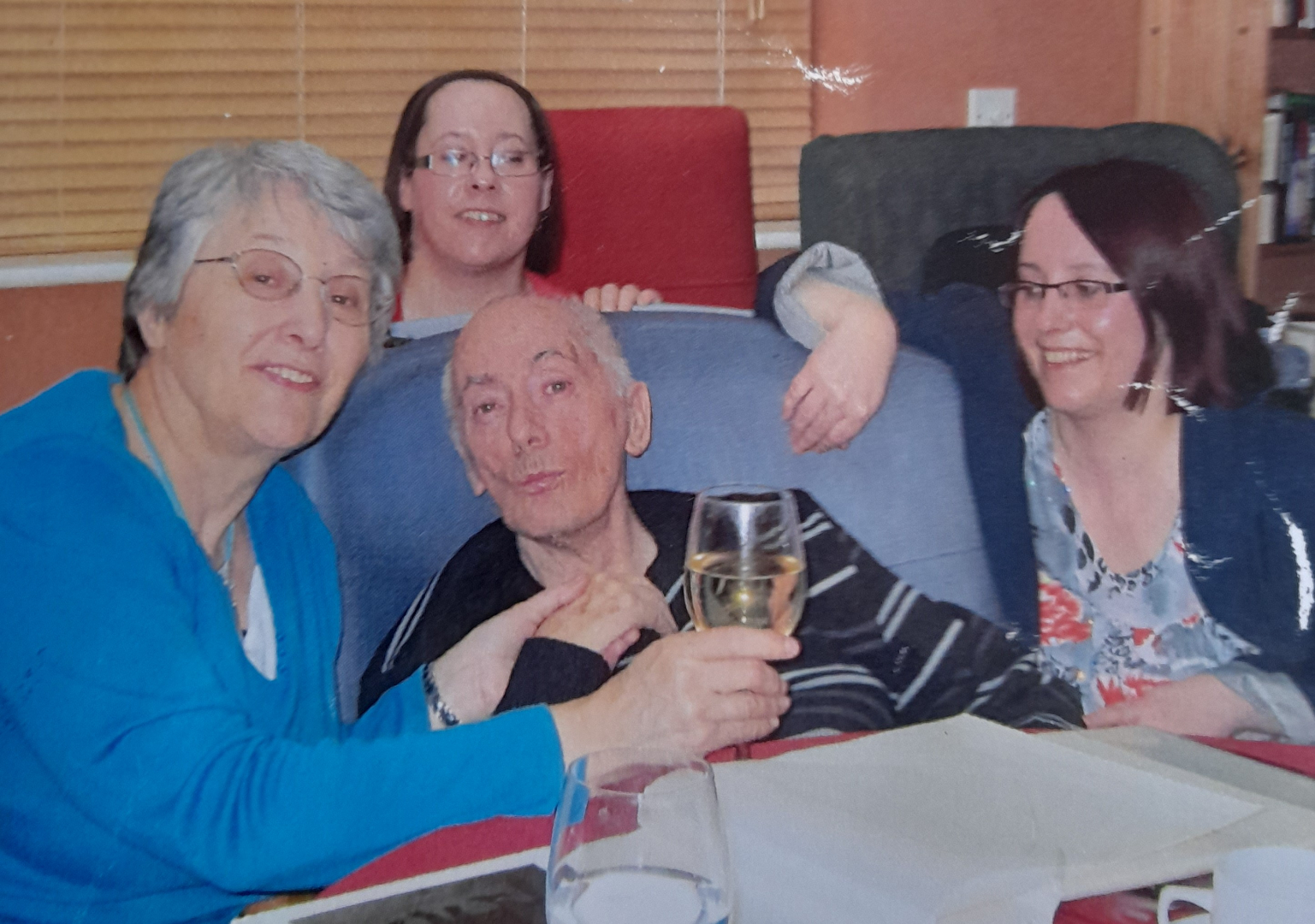
I’m pleased to be taking part in this campaign and to have the chance to tell our family’s story. I’ve got two grown up daughters who both have Huntington’s disease. It was passed down through my late husband Tony’s side of the family, although it was only with hindsight that we could track it back.
My husband’s Mum was told she had dementia when she was in her early fifties, but we now think that must have been Huntington’s. Tony was misdiagnosed with Alzheimer’s himself back in 1996, and it wasn’t until four years later that he was properly diagnosed with Huntington’s after a specialist spotted the smallest movement in his shoulder during a consultation.
Our girls, who are twins, Jennifer and Yvonne, were 26 at the time. Tony really didn’t want to tell them, he was really worried about how it would impact them, but eventually I convinced him he had to. He was reluctant to tell anyone in the family but we got everyone together and told them what we knew. Of course, everybody was absolutely devastated. It was very, very hard.
The girls both made the decision to be tested and so they knew from fairly early on that they carried the gene. They both made the decision not to have families, which of course was very difficult for them, as they both adore children. They had to stop working quite early on, they both struggled particularly with depression in their twenties. It was very hard for a while as Tony’s symptoms became worse, and they could become very distressed with some of his behaviour. Particularly if I was out of the house, it wasn’t really working to have all four of us under one roof. Eventually we reached the point where the best thing for Tony was for him to go into a nursing home, where we had expert care for him. They were absolutely wonderful from the start, it was a lovely place, and the team were fantastic, and became like an extended family.
What I found particularly difficult with the girls was that their Huntington’s journeys have been different. Both have had, and are still having, different rates of progression and different symptoms. That is hard to watch, and it is hard to be the one making all the decisions when things are particularly hard. I’ve had to make really difficult decisions. Because my girls didn’t have access to proper psychiatric care we had some very difficult and distressing incidents with them self-harming, attempting suicide, and making attacks on me. I had to call the Garda to help me manage, and for their own safety, and that’s something that I don’t think I should ever have had to do. Better access to the right services is definitely needed.
Both my girls are now in Bloomfields, which is a fantastic place. It has of course been very hard through Covid, as I haven’t been able to visit as I normally would, and it has interrupted the settling in process for Yvonne. On the other hand, I do feel that Covid has given me the space and time to grieve for Tony, which is so important. Just because somebody has a hard time with an illness like Huntington’s it doesn’t mean that their loss isn’t felt just as much. We were together from the age of 19, and we had some lovely times. He was a wonderful man, such fun to be around and an utterly dedicated family man who did everything for his daughters. They were his world, he couldn’t do enough for them, from the moment they were born that’s the way he was. When I’ve had to make hard decisions about care for the
girls I do that for both of us, thinking about what he would want for them too, protecting them for us both.
I know it can sound like there has been no joy in our life as a family but that just isn’t true. Before Tony’s illness we had a lovely life, both as a couple and then as a family of four. And after it, the girls and I did more as a family than we might otherwise have done. We didn’t know how long we had together before things became hard, and so we packed an awful lot in. We had so many holidays! More than we would have done if Huntington’s hadn’t been there, and I have some wonderful memories from that time. It’s important to me that people know that there can be good times too.
I am pleased to be able to share our story. I think there is a lot of grief and sadness for people who live with this horrible disease, and we have the power to uplift each other through telling our stories and finding things in common. Perhaps we can all give each other strength through doing so. Strength to fight that bit harder for what we need for our families, to face another battle, or to stay positive ourselves, which can be so hard.
I do know that being part of community helps. Being part of the HDA ‘family’ in Ireland was a huge comfort and support to me. I got involved very early on after Tony’s diagnosis and I’m so pleased I did. I think as a carer people often forget to ask how you are, and you can just be the one absorbing all the shocks and the difficulties and the pain. Your own health and wellbeing can suffer so much. So, the ‘Family Matters’ campaign is a good chance to help people understand how Huntington’s affects the people who do the caring too.
Anna P, Dublin.
Me and Christy
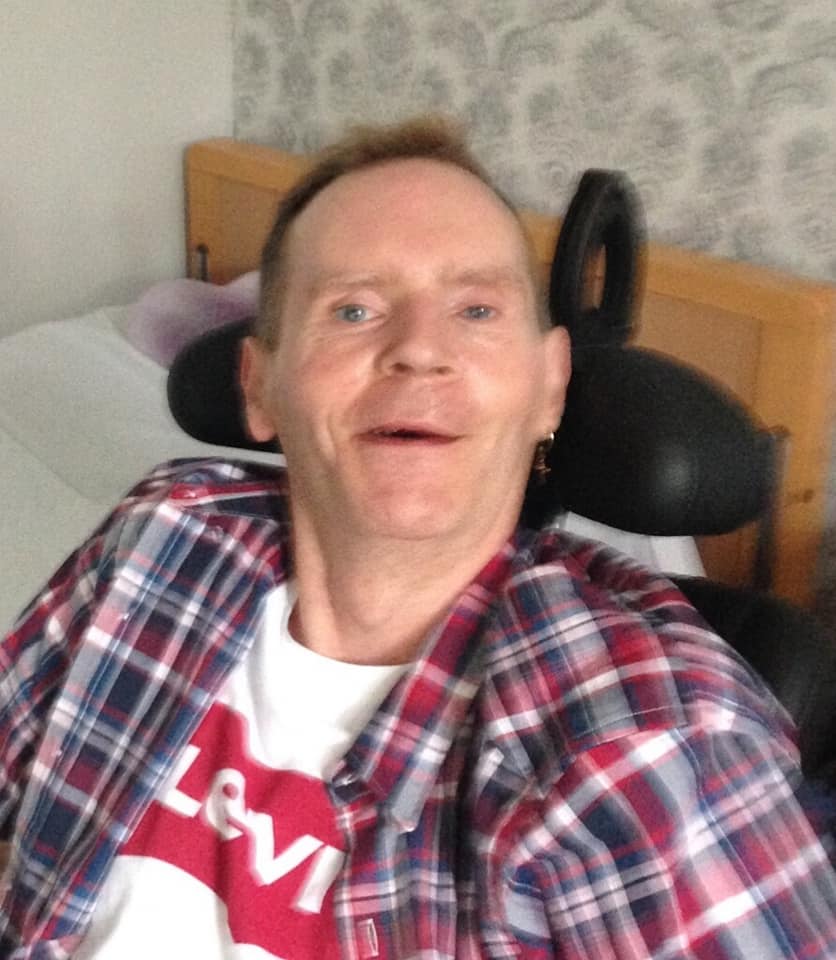
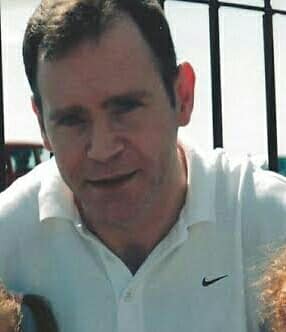
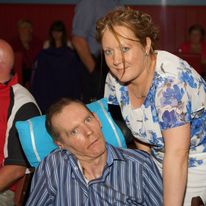
I met Christy at my brother’s wedding in Cyprus. He was this great handsome, tall man with loads of character, and we were friends before we became a couple. Once we did get together, we moved things along quite fast and I moved to Dublin to be with him a year after we met.
A couple of years after that he started having terrible headaches, really debilitating, and then had pneumonia more than once. He also developed a tremor and was a bit unsteady on his feet. It didn’t occur to me that it was anything serious at the time, I always put it down to something else. The shakiness seemed to be when he was with my family for instance, and I put that down to a nervousness around them. I didn’t put the various pieces together and just didn’t realise there was a problem. We knew Huntington’s was in the family but had no idea this was the beginning of Christy’s Huntington’s journey.
Things started unfolding when he was 32 and ran into trouble at work. He worked in security, and was suspected by management as drinking on duty. He was devastated, he loved his job and although he liked a drink he would never have done that. He couldn’t really prove it though and he lost his job which was a huge blow to him. It really destroyed him. He went to the GP, in an attempt to find a physical reason why, and eventually of course we found our way to a diagnosis. I had not really understood what Hungington’s meant until this, I remember looking it up and being devastated by what I learned. Christy’s Mum sat me down before confirmation, saying she believed it would be a positive result. Christy’s Dad had Huntington’s, it had caused so many problems in their lives, so his Mum saw the signs and helped me understand what we were dealing with.
It was too late for him to get his job back. We went through the appeal process and worked really hard to try and sort things out, but it was just too late by the time we had the diagnosis, and even if it hadn’t been, he couldn’t have kept doing that public-facing role. That really broke him as he had loved it so much. In the end he did get the apology he so dearly wanted, and a small amount of compensation. He was happy with that and although I look back and think we should have fought for justice, you are in the eye of the storm and don’t always make the decisions you should. His Mum had made us understand the reality of Huntington’s and we took the choice together not to get a mortgage, and not to have children. Such big life decisions.
I kept my job, my boss was absolutely brilliant, but really my focus had to switch to being 100% on Christy. I had to care for him but also I had to fight so many battles, we really struggled with services, with getting what we needed, and eventually he couldn’t verbalise things so I had to do all of that. We were so lucky to have the brilliant support of Patricia, Liz and the HDAI.
It’s an incredible stress. I think other people around me probably thought that I was coping. In reality I put a mask on when he was first diagnosed and kept that mask on tight. I knew I had to stay strong.
Christy died in 2016 but he is still such a big part of my life and there is so much that I want people to know about him. He was such a big personality. He was so full of life and funny. He made a list of things that he wanted to do. He wanted a tattoo but because of his movements and being in a wheelchair, it was hard to find someone willing to do it. Eventually, we found an artist who agreed but needed a GP letter saying it was ok. Our GP knew Christy’s personality and wrote a note saying, ‘I can confirm that Christy is able to have a tattoo but no naked women Christy!’ which gave us a laugh! He also wanted to dye his hair and get his ear pierced! We had a lot of fun together.
I want people to know how devastating Huntington’s is, but I also don’t want people to be scared if they are facing a diagnosis. Admittedly I always think of Christy as very brave, but I am sure other people may feel the same as me, that because the disease is so slow, he was more in control than he might have thought. When he lost his speech, he was prepared and ready, the same with the feeding tube. I actually think he had control right to the end of his life.
In some ways it may be harder for the person left behind. I lost the love of my life, and also my focus and sense of self. I lost all motivation and job satisfaction in my role in Accounts so I completely changed career and have found my way to what I love doing, a career path in advocacy, which is wonderful. I struggle now to socialise, I can’t build emotional connections because I don’t really know who I am any more. I hope any other partners and spouses reading this might learn from me and try and maintain friendships, take time for themselves outside the home environment, although I know of course that is easier said than done.
I do want people to know that although we went through so much pain and heartache, I wouldn’t change a thing. My brother has said to me a few times, ‘if you’d not met at our wedding you’d have had a different life’, but I believe it was fate, I wouldn’t change a single thing. I would do it all again, in a heartbeat. He gave me so much, and I learned so much about love and the value of life. Every time I think about him I smile which says it all. I feel blessed and honoured to have spent my life with him.
I’m so pleased to be taking part in this project. It’s so important that people get to know not just what Huntington’s is, but who it affects, and to get to know the people behind the name. Sharing his story means his life continues to have purpose, which is only right considering the man he was.
Anne O’Shea Clarke, Dublin.

